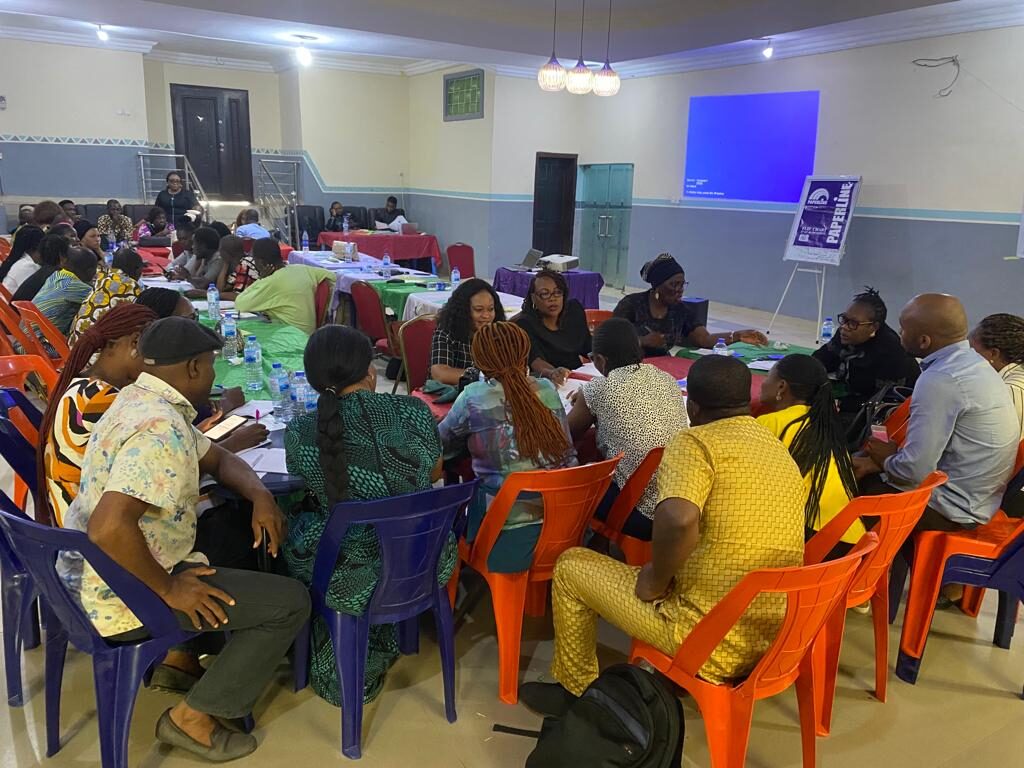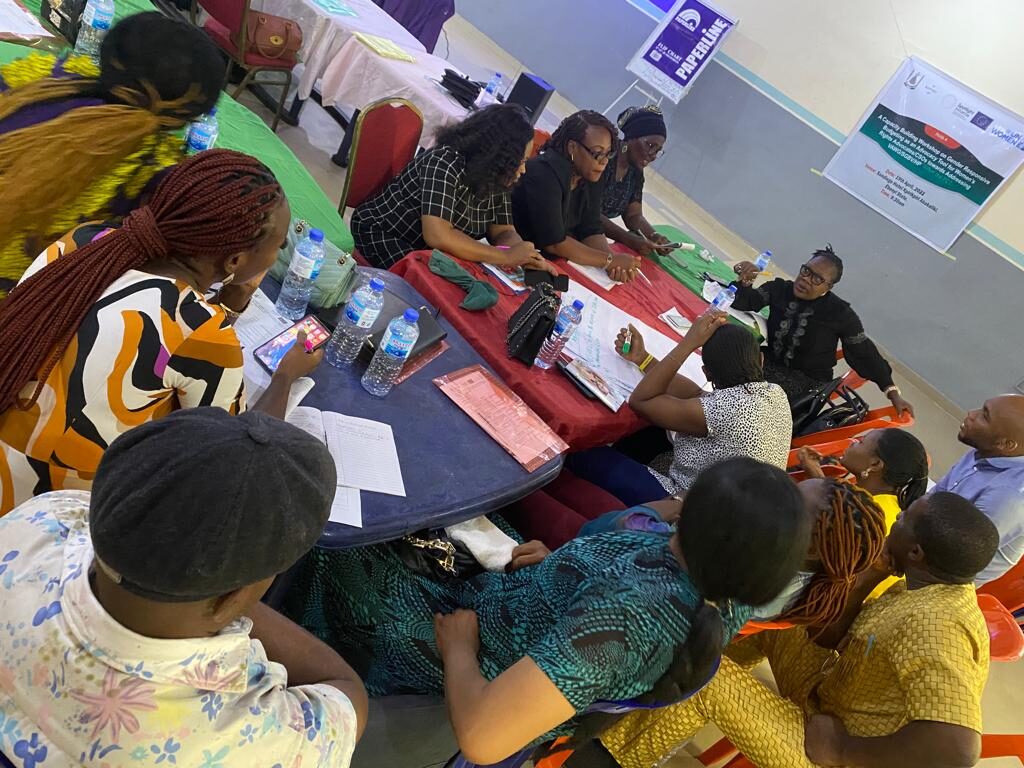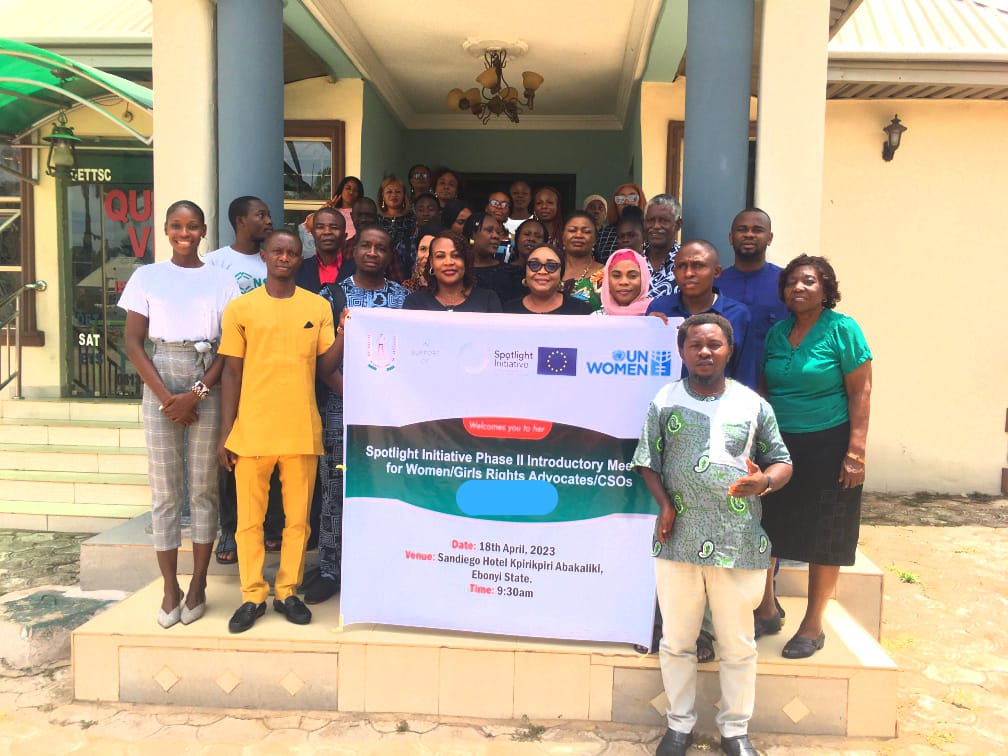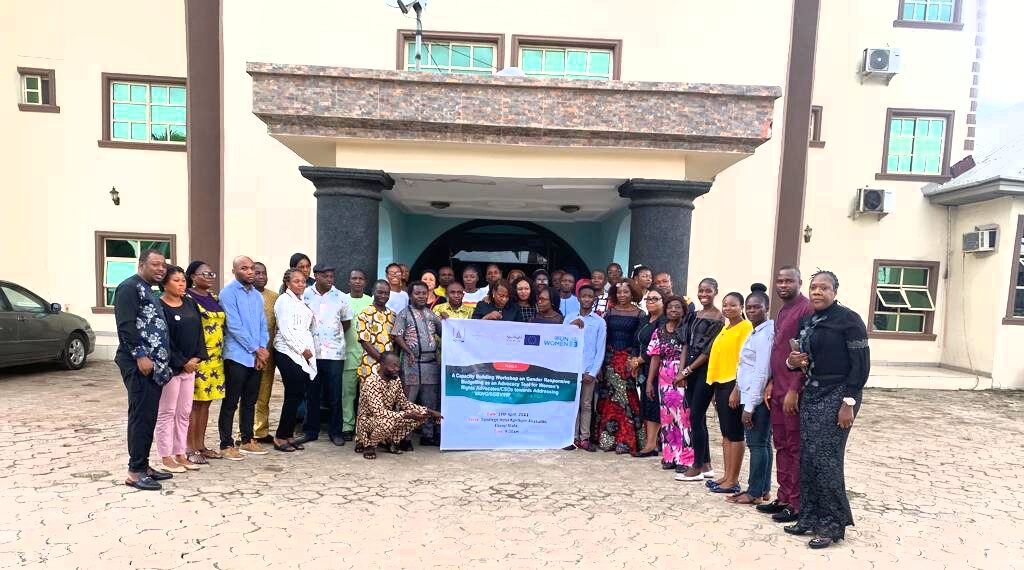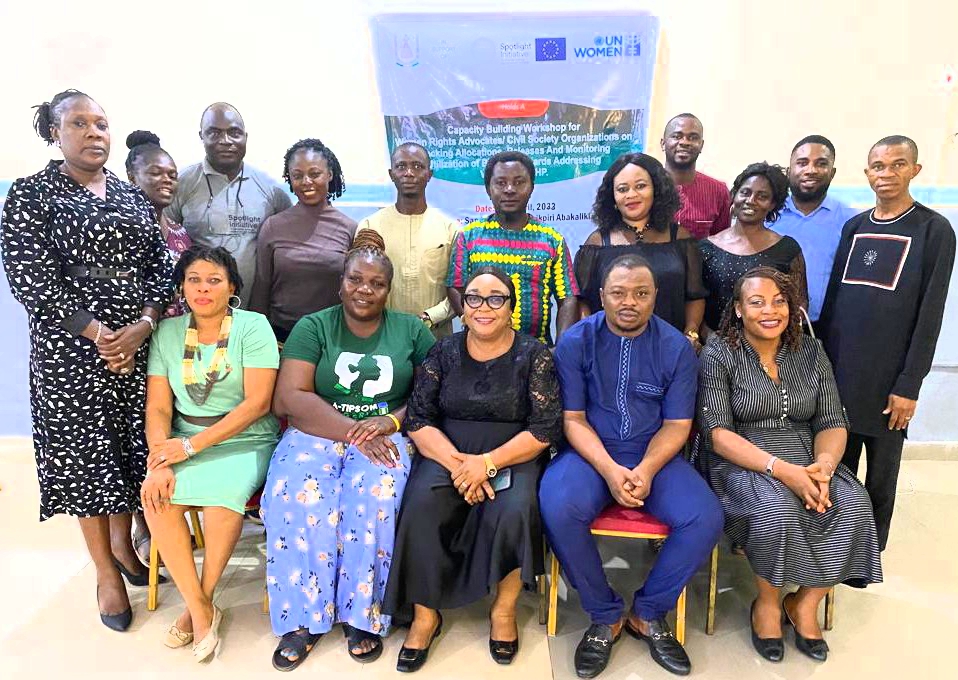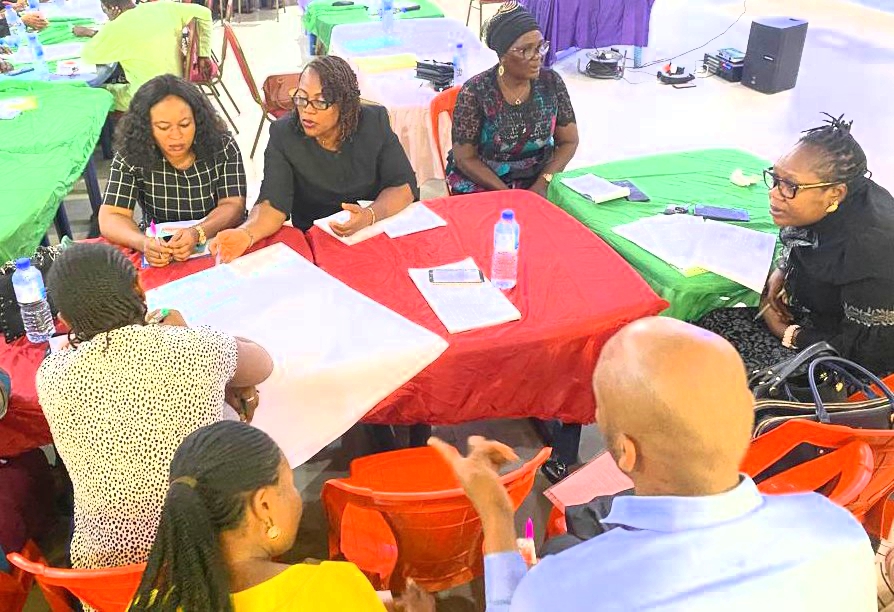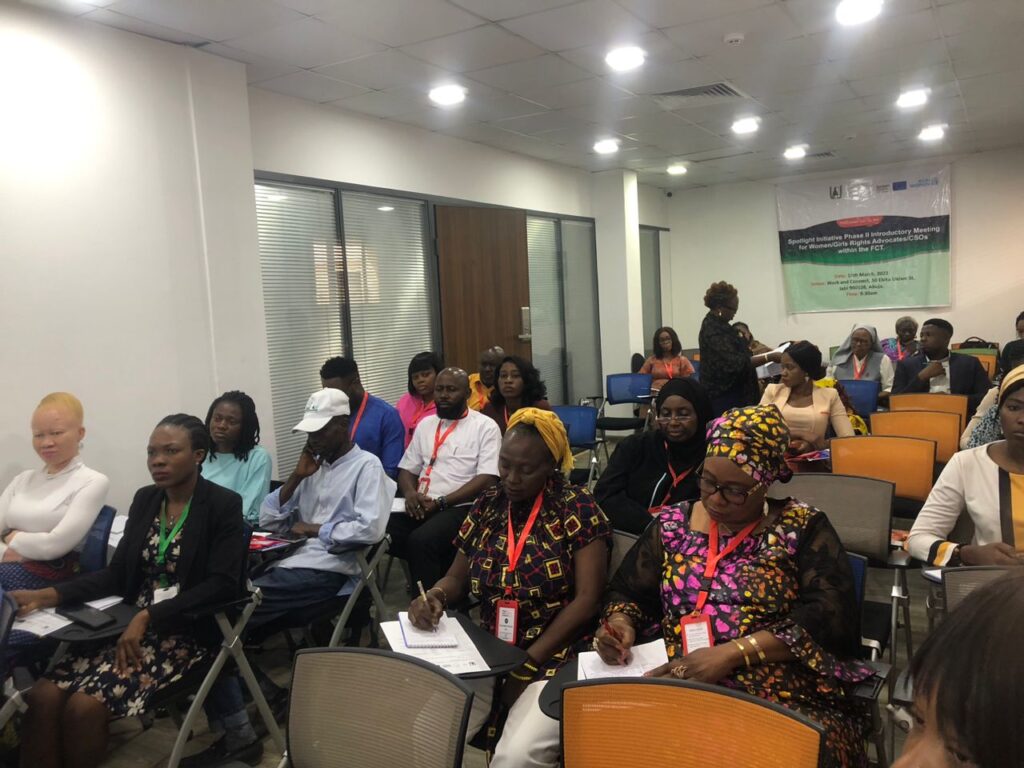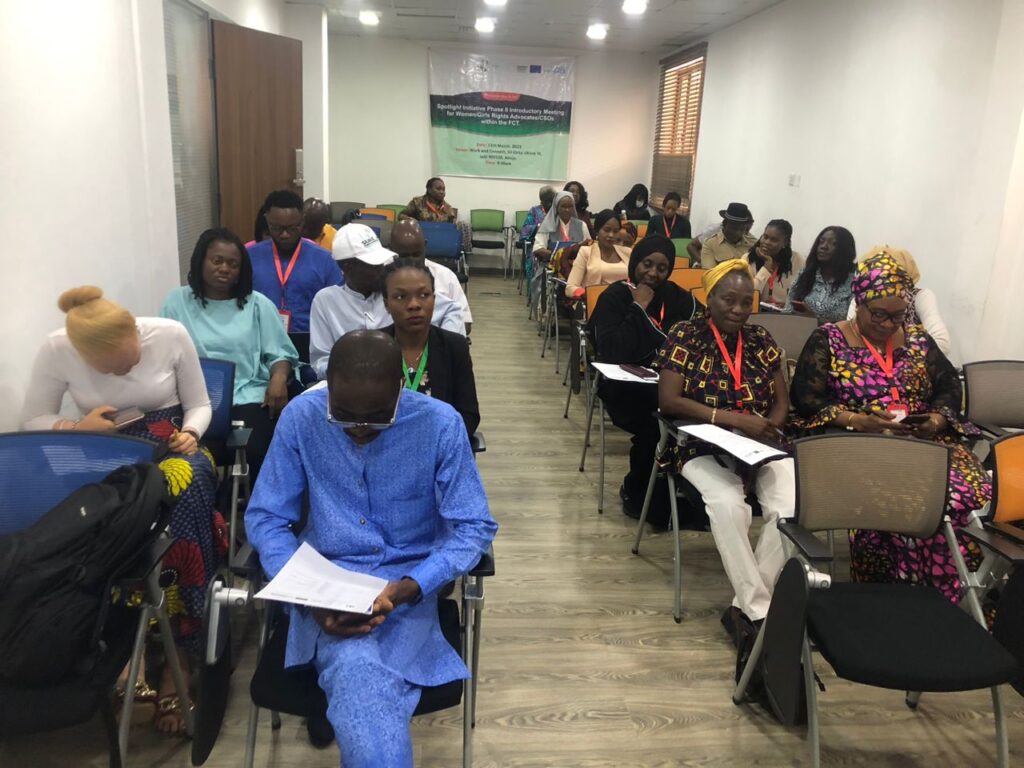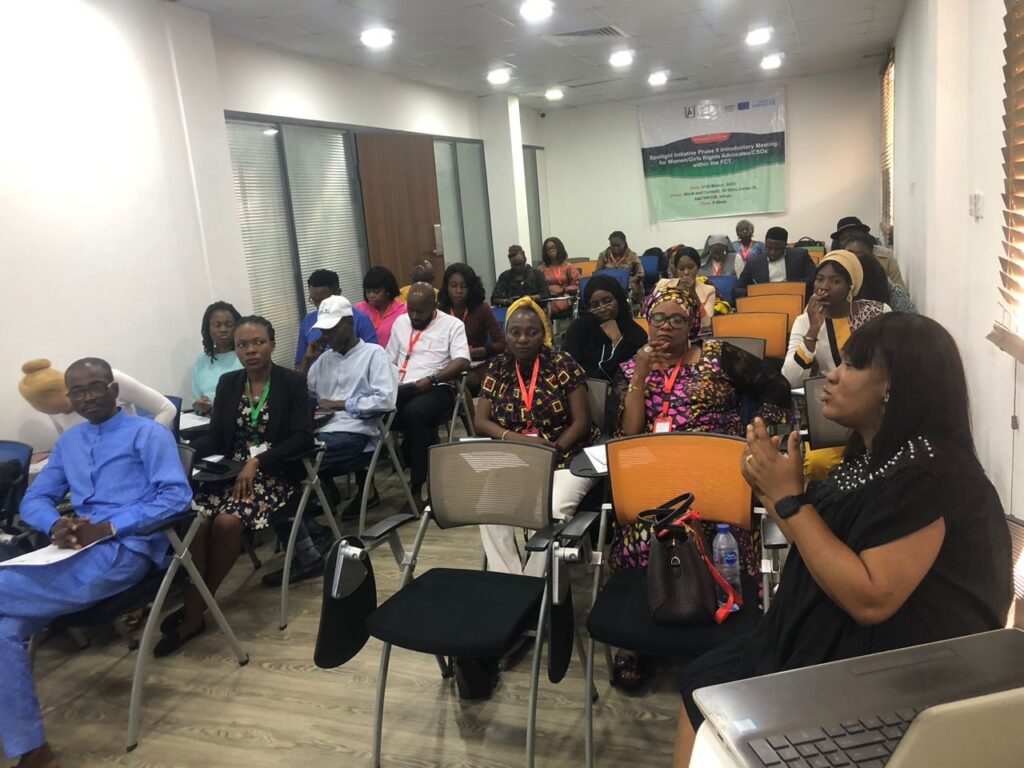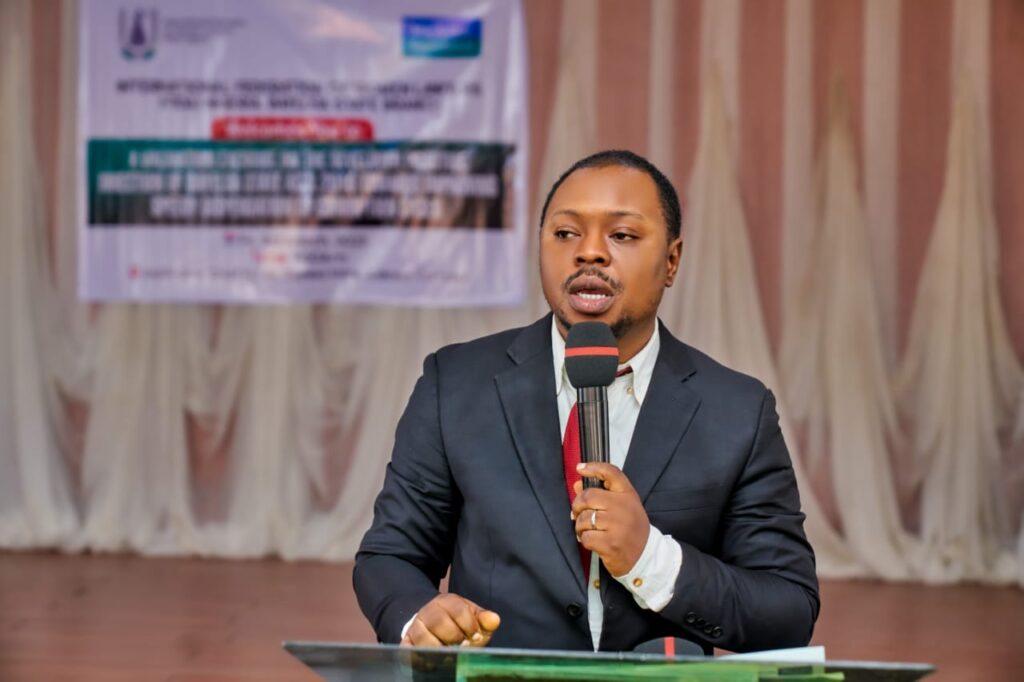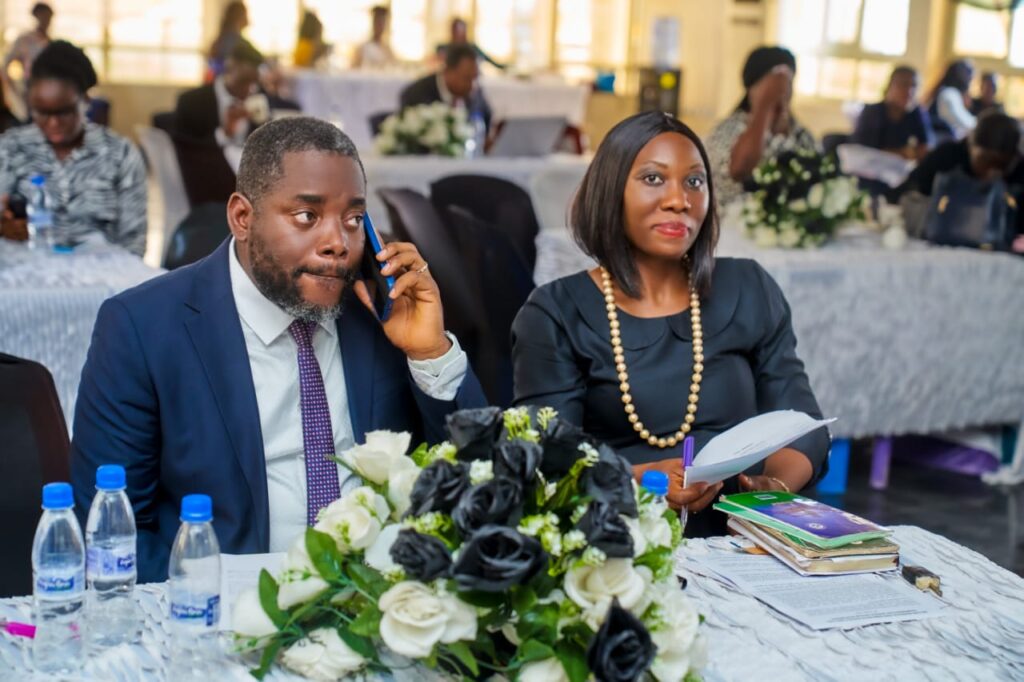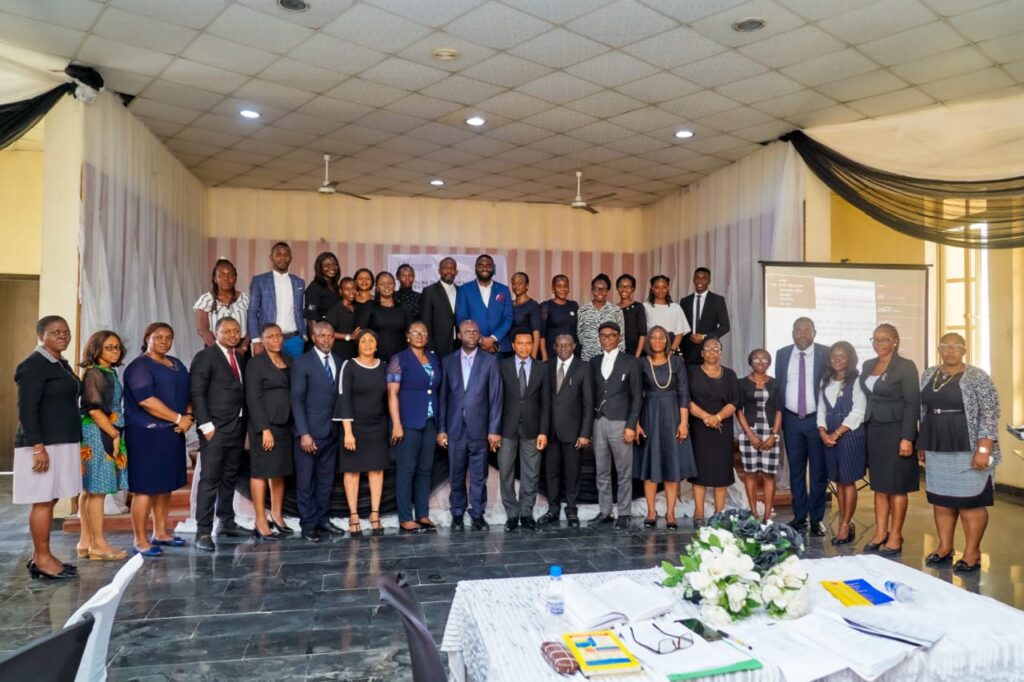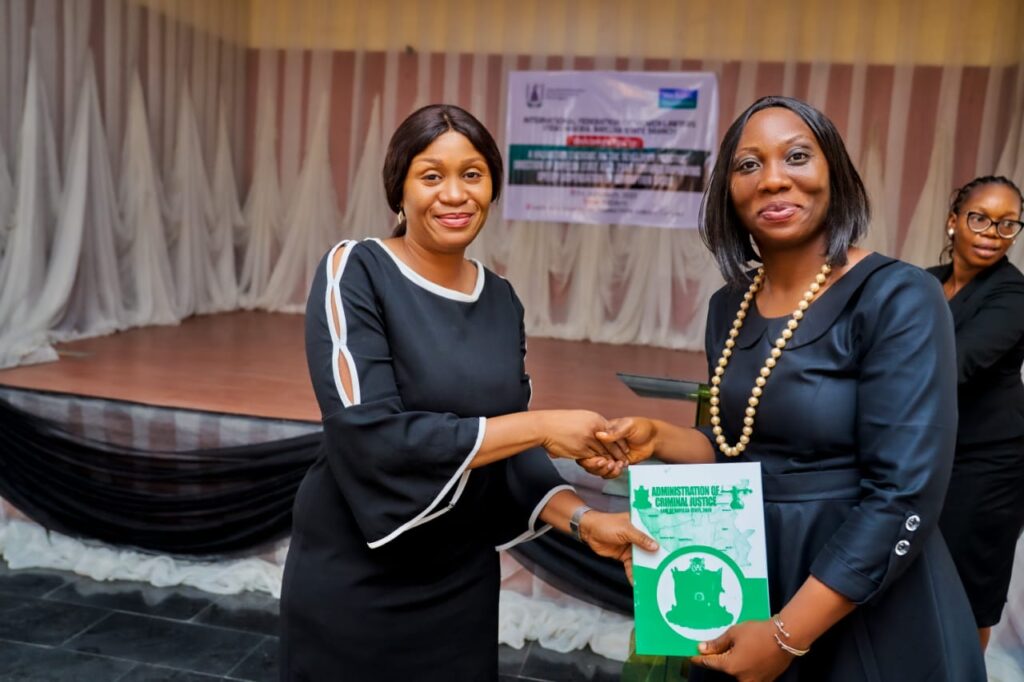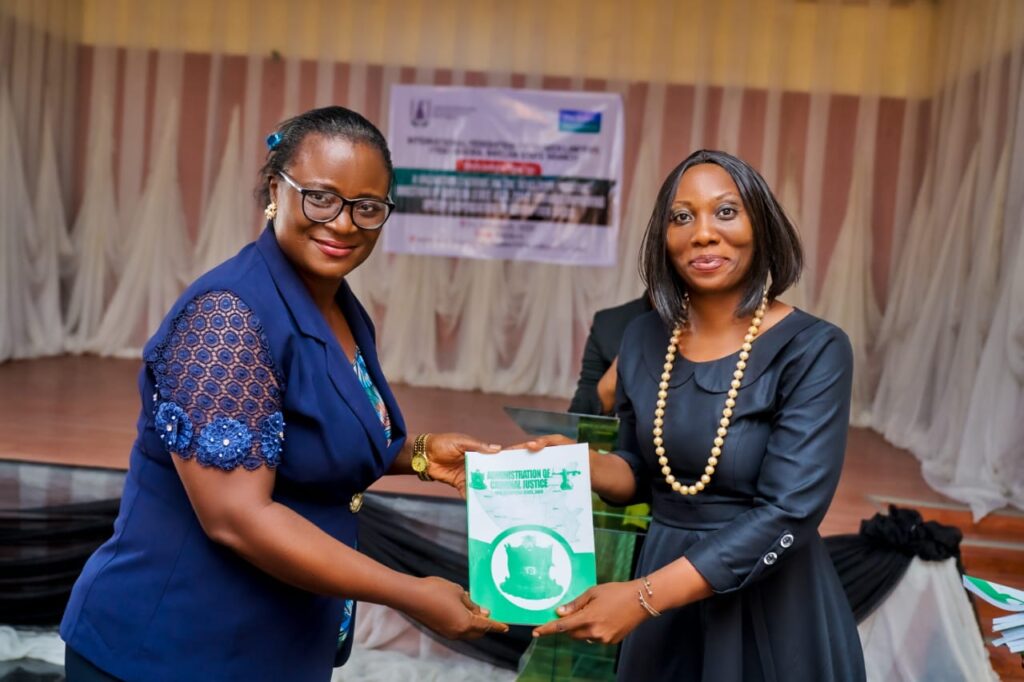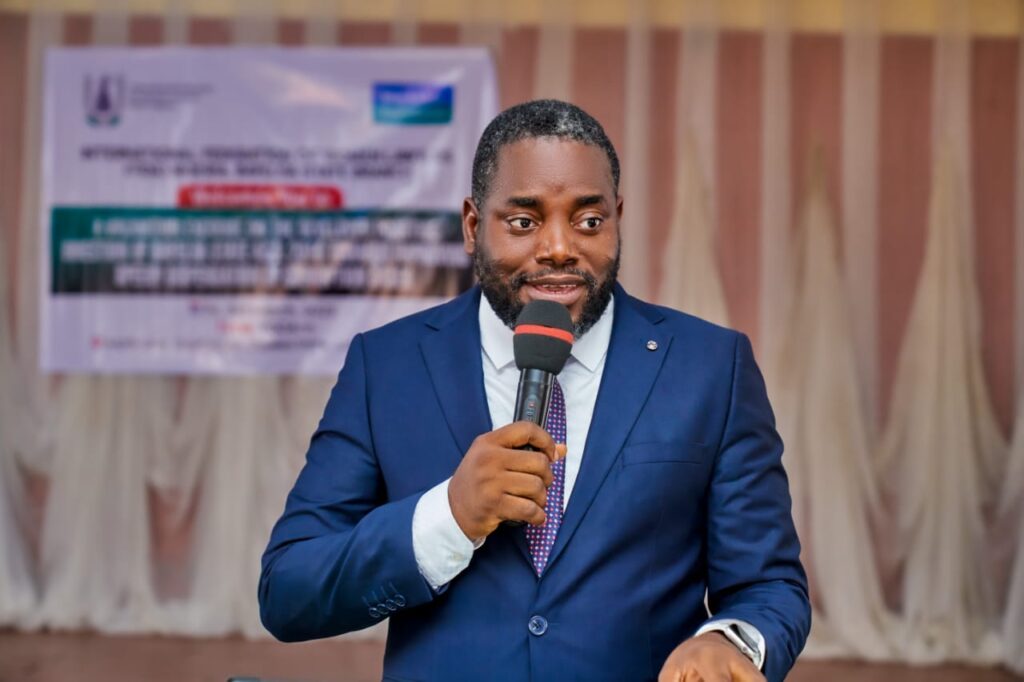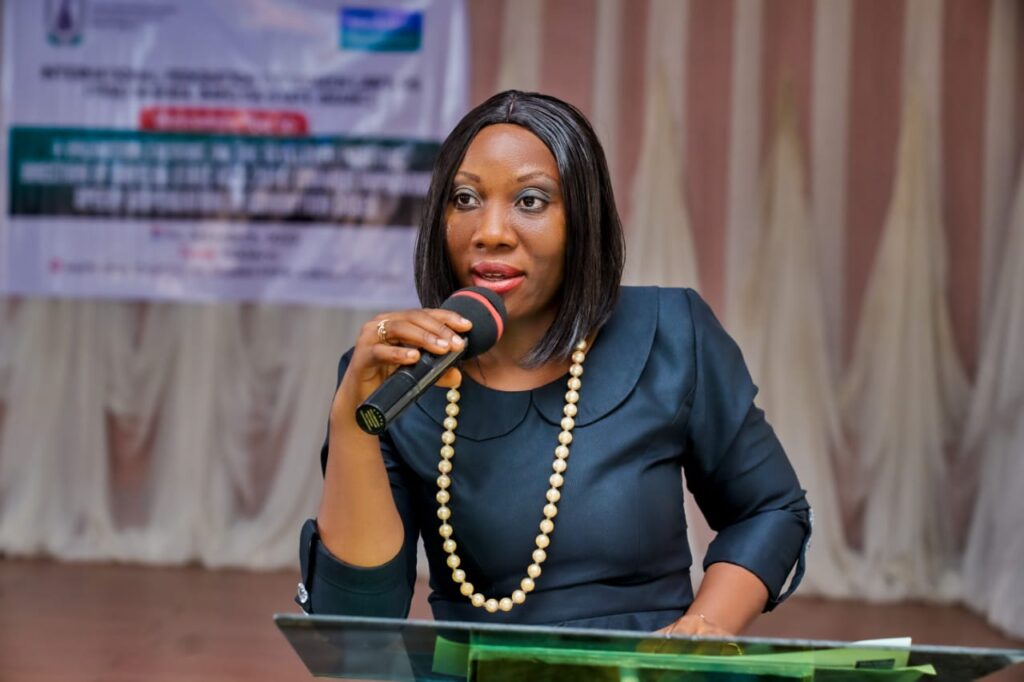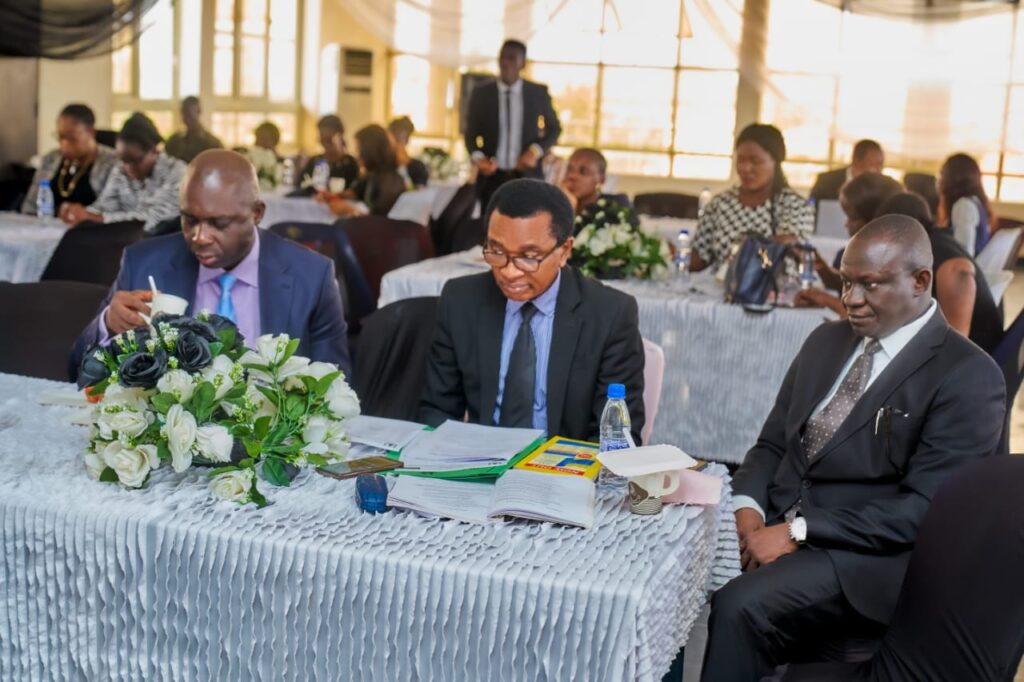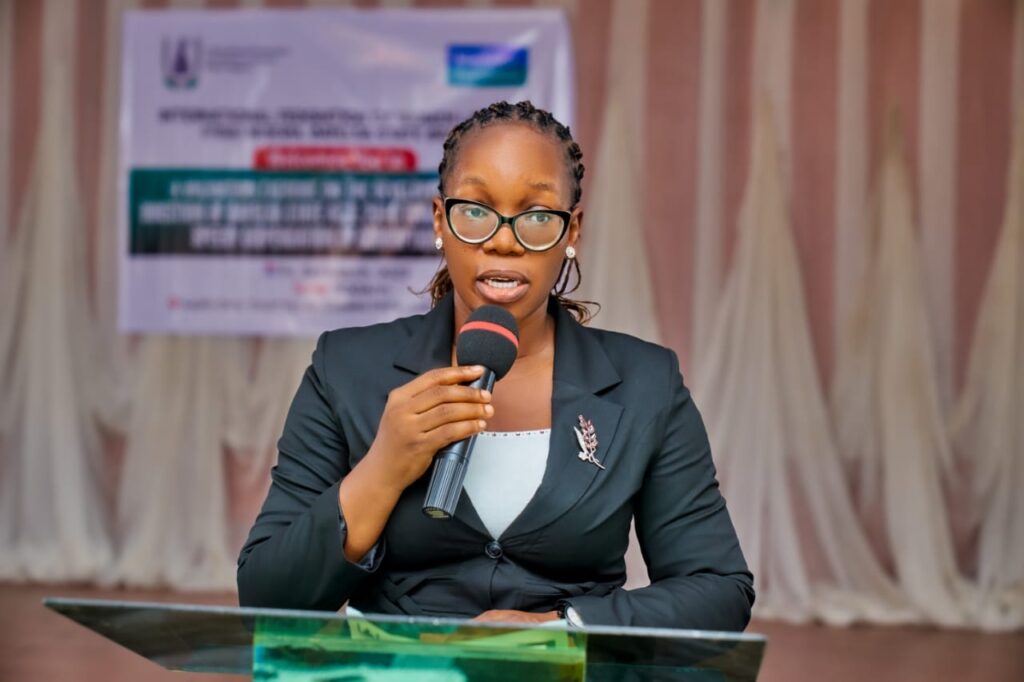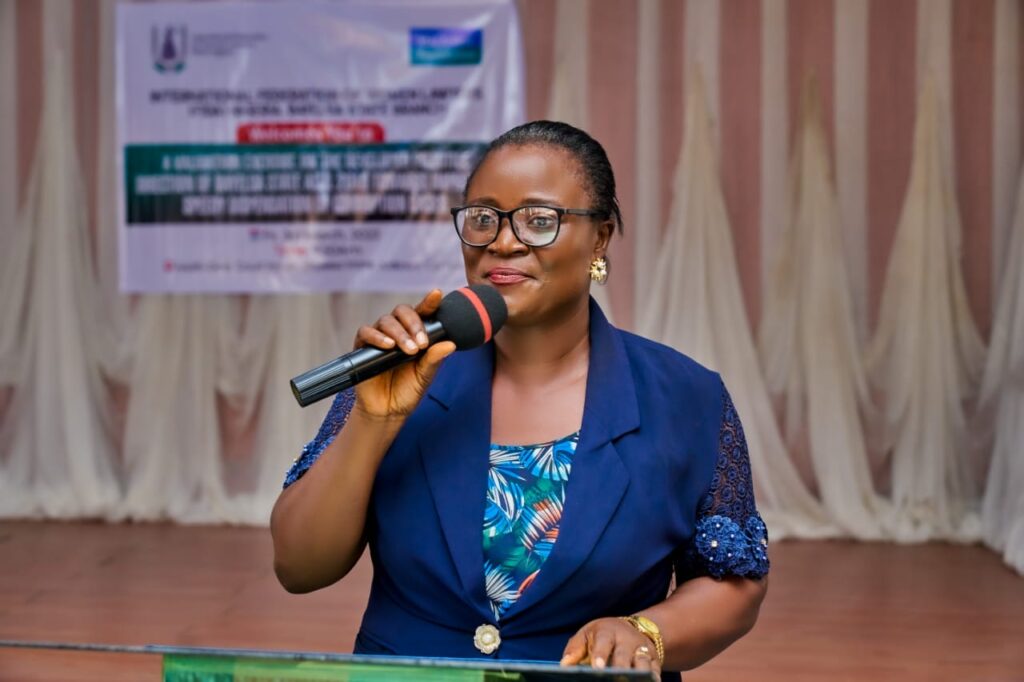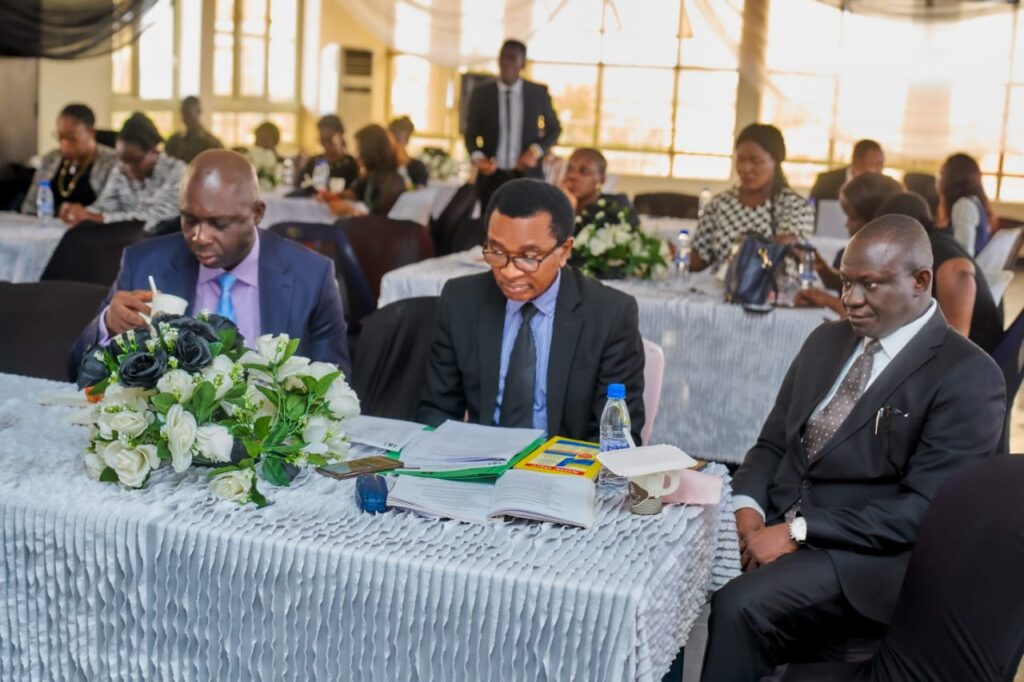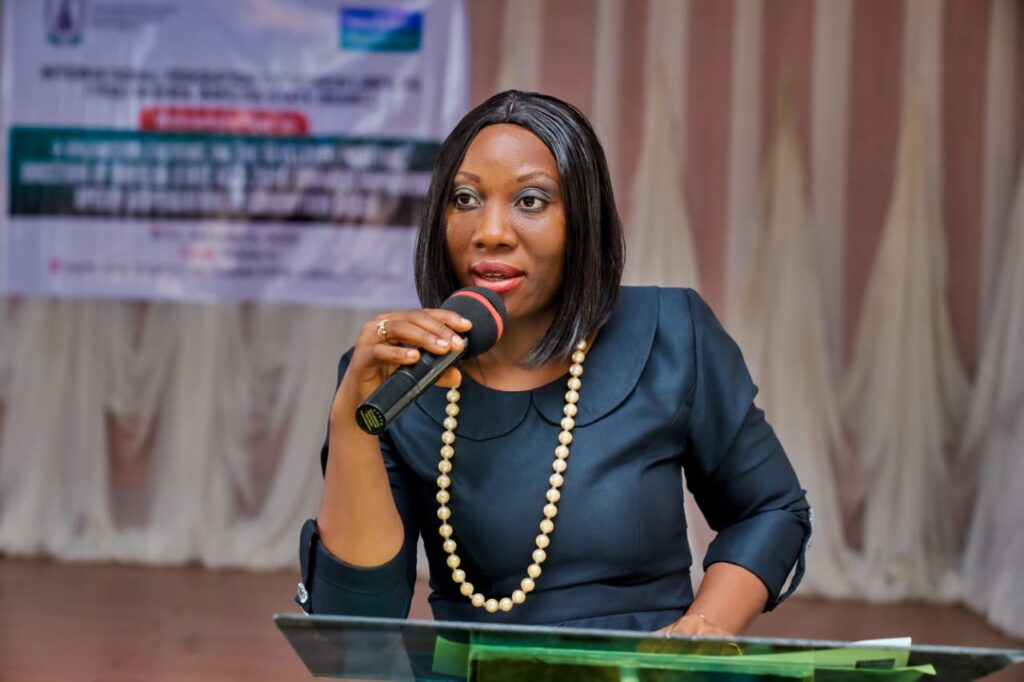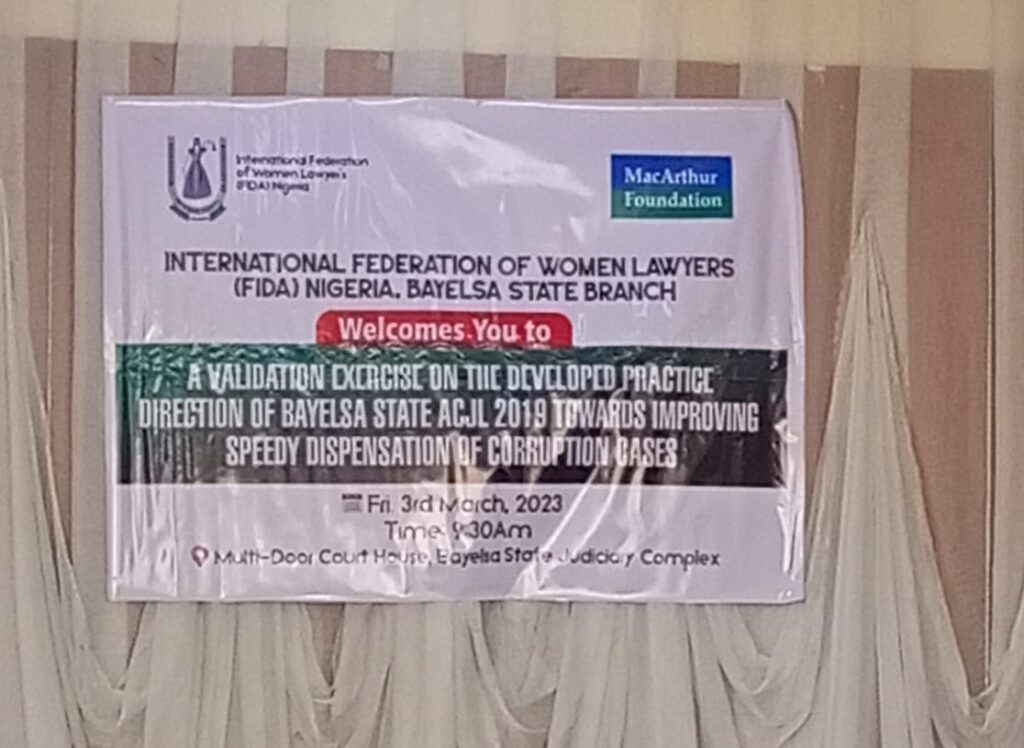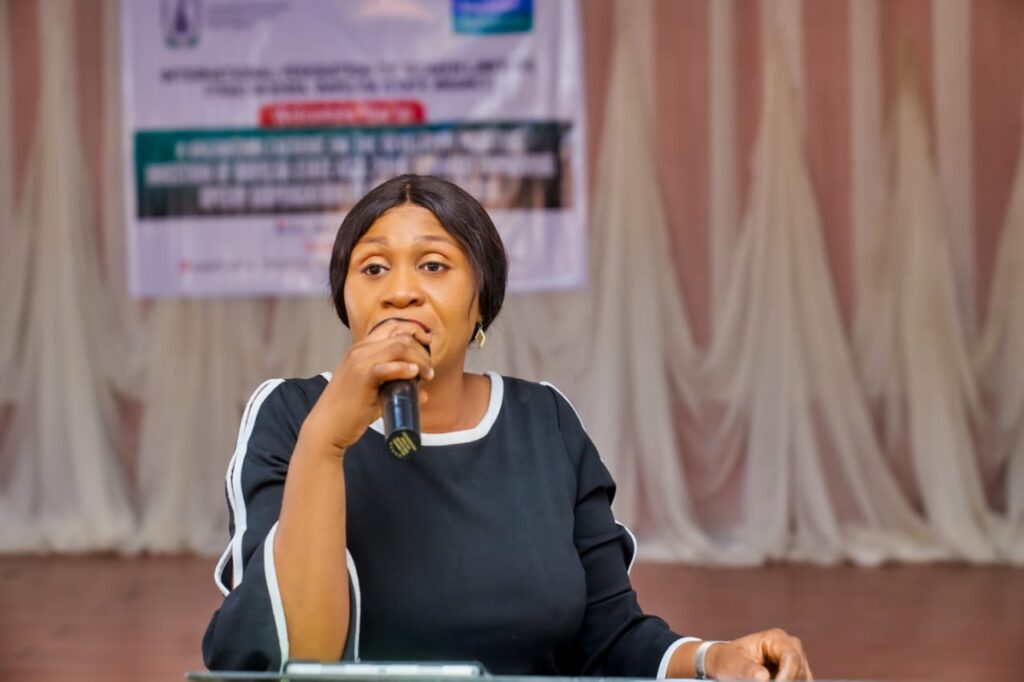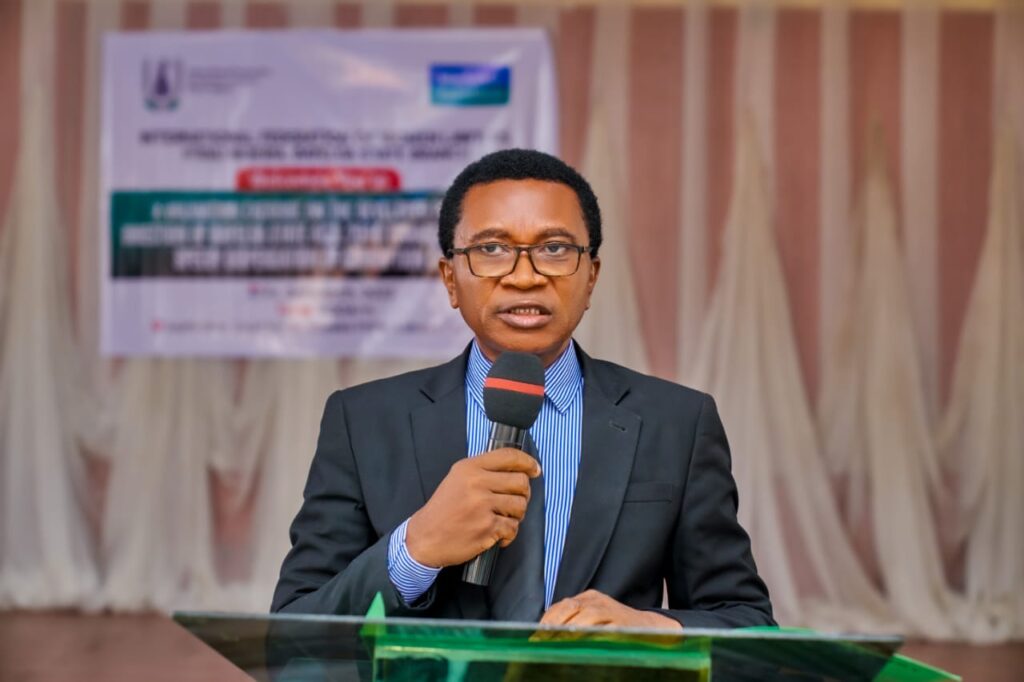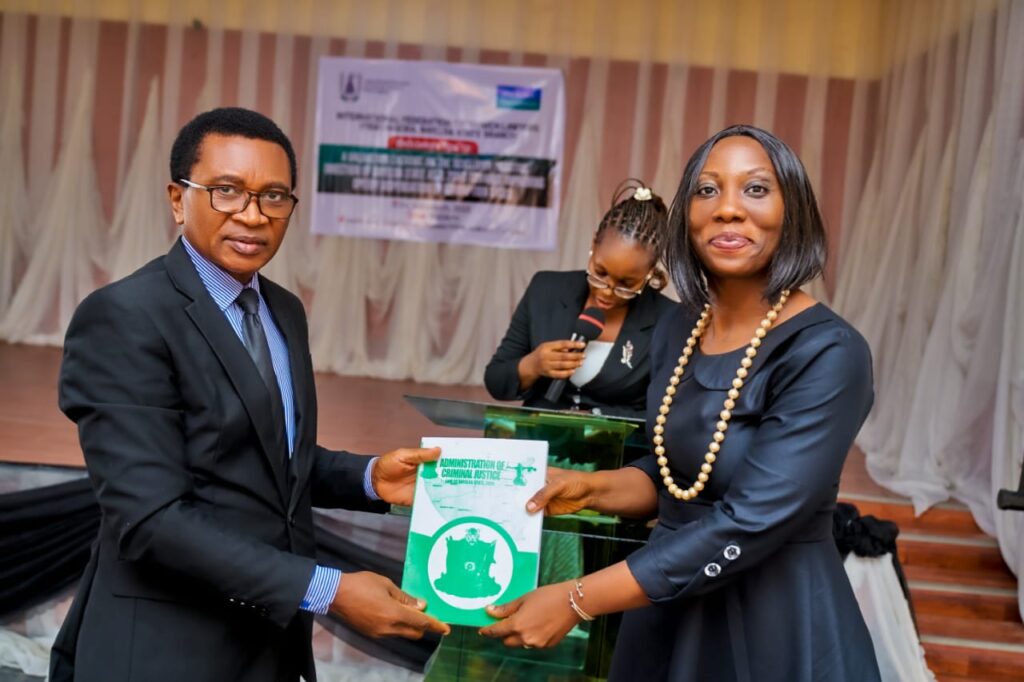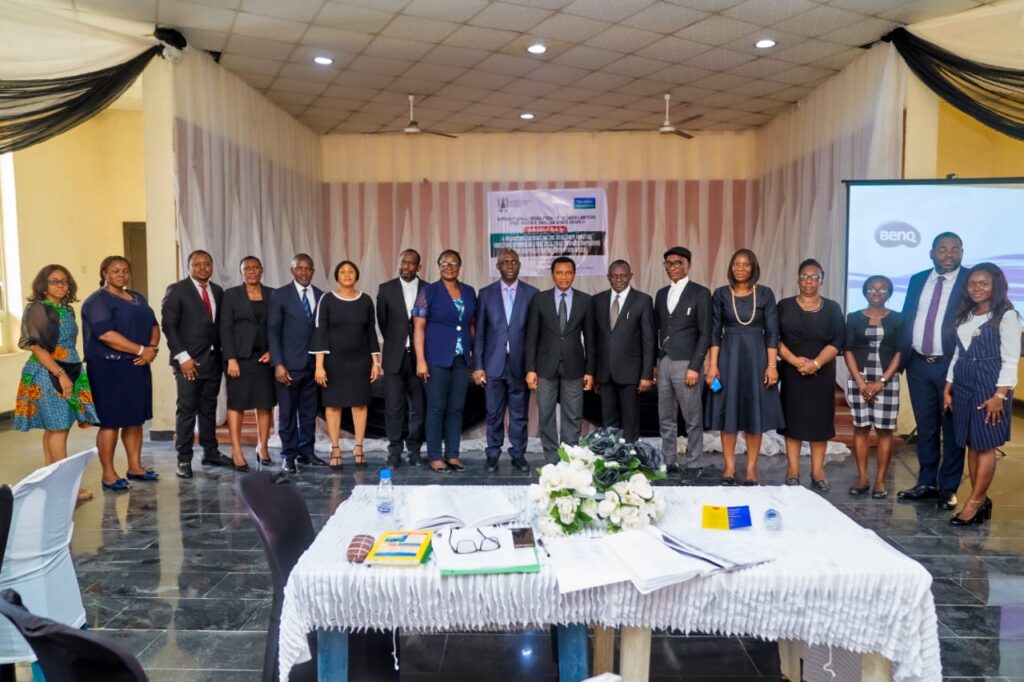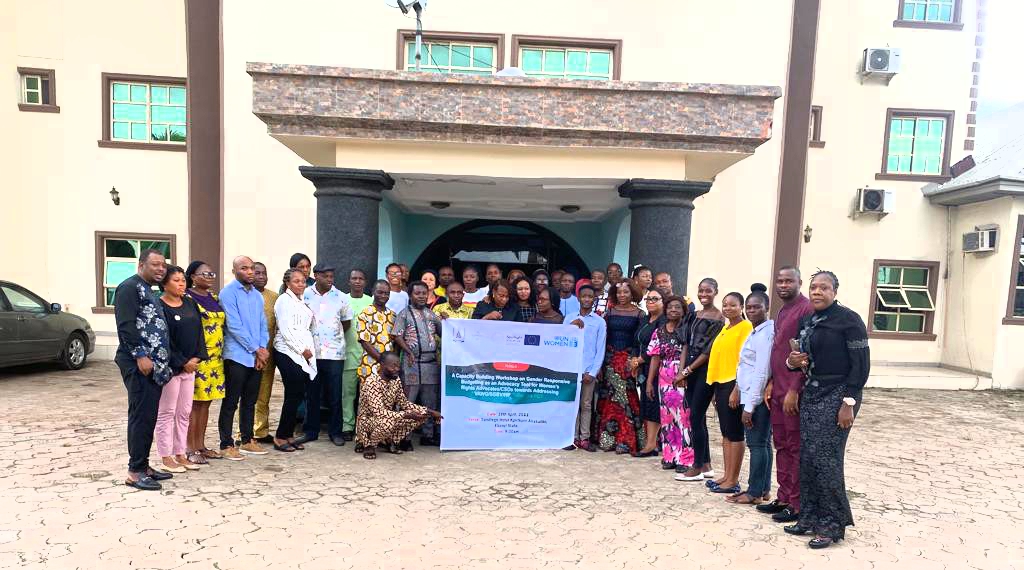
FIDA Nigeria Held a 3-day Training on Gender Responsive Budgeting
Women remain under-represented in public life, which means that government policy, including economic policy may not take their needs and priorities into account. Policies which appear neutral on the surface may have unintended consequences, including increasing gender inequality.
On this premise, FIDA Nigeria on the 18th to 20th of April 2023, held a 3 day Training Session on Gender Responsive Budgeting as an important Advocacy Tool for Tracking Allocation, Releases, and Monitoring Utilization on Budgets towards addressing VAWG/SGBV/HP in Ebonyi State.
The capacity of the participants were measured through Pre and Post Evaluations and further through group work. They all made their commitments to lead coordinated advocacies to relevant MDAs in an effort to make sure that gender line items appear in every budget and also make sure that allocated resources for gender programs are utilized to improve on the expected outcomes.
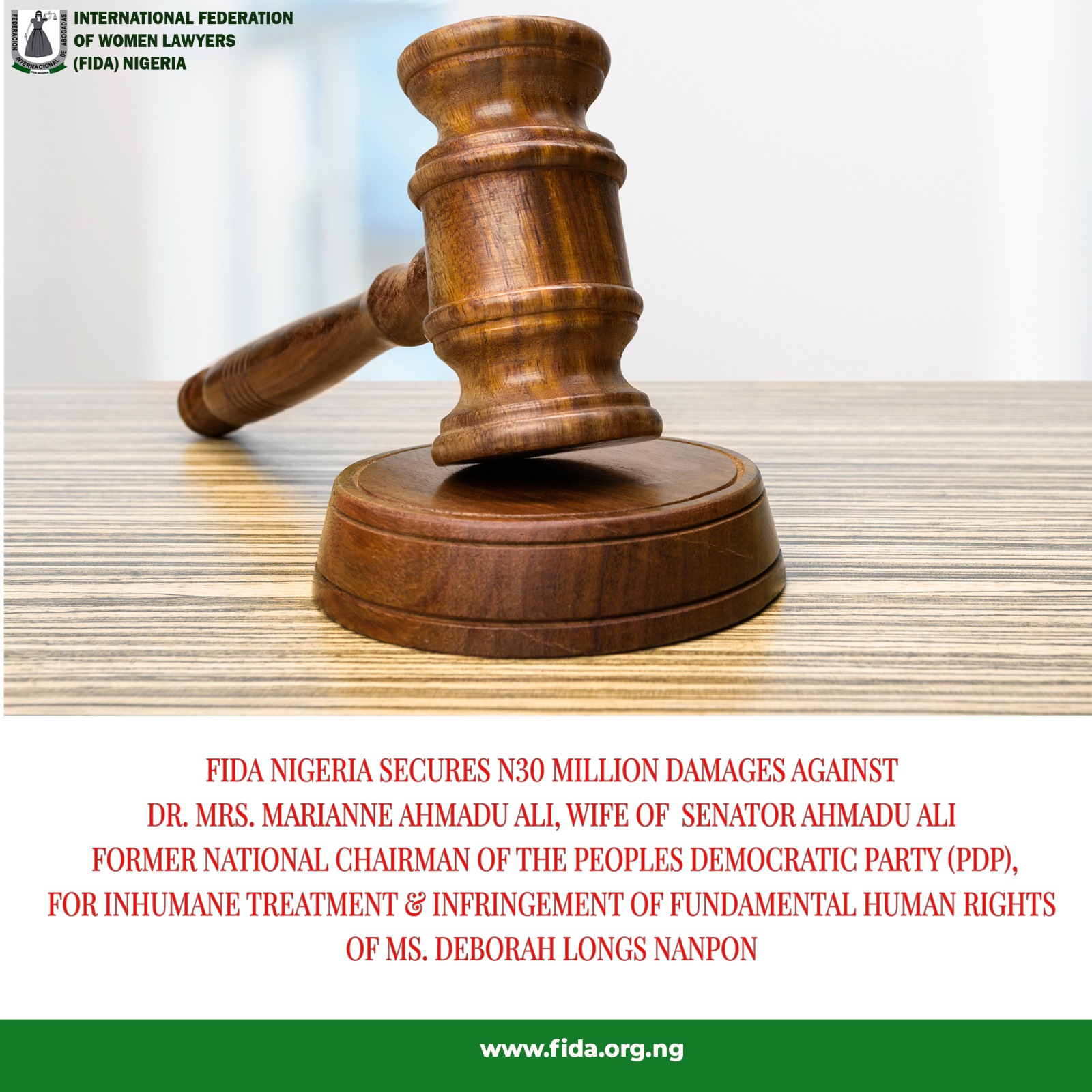
FIDA Nigeria secures N30 million damages against Dr. Mrs. Marianne Ahmadu Ali for inhumane treatment & infringement of Fundamental Human Rights of Ms. Deborah Longs Nanpon
FIDA Nigeria in total disgust at the inhumane treatment, and infringement of Fundamental Human Rights of Ms. Deborah Longs Nanpon by Dr. Mrs. Marianne Ahmadu Ali, wife of Senator Ahmadu Ali, a former National Chairman of the Peoples Democratic Party (PDP), and her Children; FIDA sought to stand in her defence and to enforce the Fundamental Human Rights of Ms. Deborah Longs Nanpon as guaranteed by the 1999 Constitution of the Federal Republic of Nigeria (As Amended) and the African Charter on Human and Peoples’ Rights (Ratification and Enforcement) Act (Cap 10) Laws of the Federation of Nigeria 1990 (As Amended).
Ms. Deborah Longs Nanpon, a Personal Assistant to Dr. Mrs. Marianne Ahmadu Ali had been physically, verbally and emotionally abused, inhumanely mal treated being locked up in a dog cage for three days without food or water and forced to defecate and urinate on herself in that cage. FIDA totally abhors such which is an absolute infringement of her Basic and Fundamental Human Rights and a breach of the VAPP Act (2015)
FIDA Nigeria therefore on behalf of Ms. Deborah Longs Nanpon filed a matter in court praying for an Order for the Enforcement of her Fundamental Rights seeking ten reliefs against Dr. Mrs. Marianne Ahmadu Ali, Ms. Aisha Ahmadu Ali and Ms. Halima Ahmadu Ali in suit number FCT/HC/CV/1442/2022.
The F.C.T High Court, Kubwa, delivered its Judgment on the 28th March 2023 and the Honourable Justice Akanbi-Yusuf agreed that the Applicant was indeed unlawfully detained and dehumanized. His Lordship proceeded to grant seven out of the ten declaratory reliefs sought and awarded N30,000,000.00 (Thirty Million Naira) damages awarded against Dr. Mrs. Marianne Ahmadu Ali, along with the publication of an apology in This day Newspaper.
FIDA Nigeria is pleased with the outcome of this case and conveys its gratitude to the Honourable Court for the quick resolution of this matter as should be the case.
This serves as a great deterrent to others.
FIDA Nigeria in this case was represented by Fidan Ogechi Abu, a well-respected human rights activist who led the Litigation team
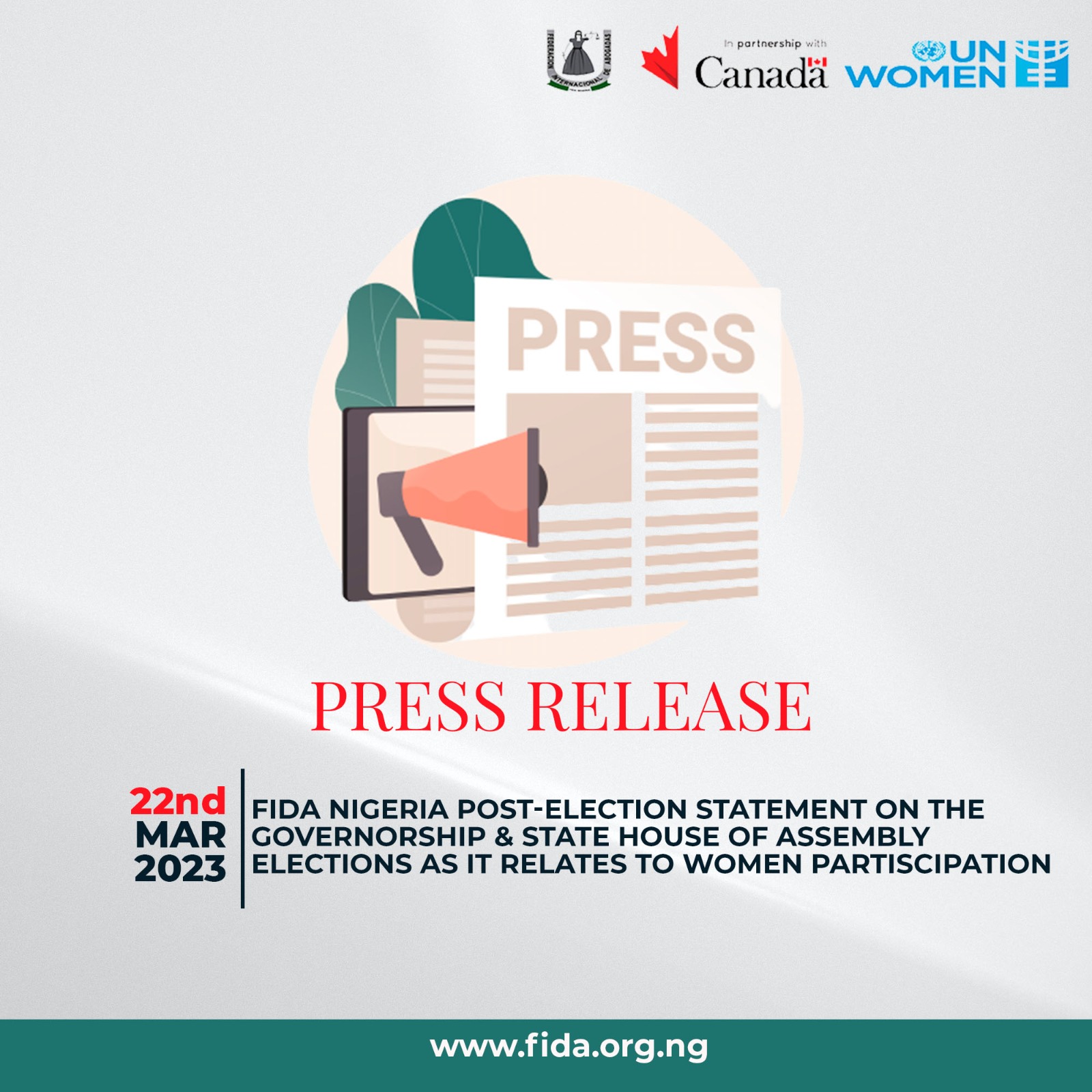
FIDA Nigeria post-election statement on the governorship & state house of assembly elections as it relates to women participation
1.0 Introduction
The Gubernatorial / States Houses of Assembly Elections held on the 18th of March 2023 has been concluded with the Electoral Umpire (Independent National Electoral Commission) declaring the results of twenty states inclusive of our four focal states namely Plateau, Borno, Kaduna, and Kwara State. We still await the results of the other states toward having a holistic assessment of women representation in elective positions across the Nation.
This election marked the fourth major election conducted following the enactment of the Electoral Act 2022 after the Ekiti and Osun states off-cycle Governorship Elections with attention hinged on the Independent National Electoral Commission (Electoral Management Body) performance in administering the polls.
Observations demonstrated that the election was an improvement from the Presidential & National Assembly Elections as we witnessed the early arrival of electoral materials and officials which culminated in the early commencement of polls, effective transmission of results from the polling units to the INEC Result Viewing portal, improved deployment of security personnel to hotspot areas amongst others. However, despite this improvement, we observed shortcomings relating to vote trading and voter apathy which affected women participation at the polls.
We commend eligible voters and all women that participated actively in the process for their commitment and belief in the electoral system.
We have observed that within our focal states, some women emerged as winners in their respective state constituencies at the polls. In Kwara State, a 26year old female journalist Rukayat Shittu won a legislative seat at Owode/Onire constituency in Asa LGA. Similarly in Plateau State, Mrs. Happiness Akawu emerged winner and now representing Pengana constituency from Bassa LGA. In Kaduna state, Ms. Comfort Amwe won re-election to represent the Sanga constituency in the Kaduna State House of Assembly. We celebrate these women and hope that this serves as an impetus for the more effective representation of women in subsequent elections
FIDA Nigeria through her situation room situated at Nicon Luxury Hotel, Abuja, the Nigeria Capital observed the participation of women in the elections alongside other forms of violence perpetrated against women across four focal states of our intervention. Our Observations culminated in the dissemination of our pre-election statements on Friday 17th March and preliminary statements on Saturday 18th of March 2023.
2.0 Methodology /Approach
FIDA Nigeria with support from UNWomen and the Government of Canada under the Advance Women Political Participation Project observed the participation of women alongside forms of violence perpetrated against women in the 2023 General Elections through her 77 INEC accredited observers deployed across 66 polling units in the aforementioned four focal States.
An election observation tool was administered by our accredited observers at their respective polling units while leveraging partnerships with other civil society actors in observing, documenting, and reporting women’s participation and incidences of violence perpetrated against women. FIDA Nigeria through her observations provides post-election findings as follows:
2.1 Close of Polls
FIDA Nigeria observers reported that as of 2:30 pm, 47.44% of polling units under our observatory had concluded voting, while the counting of votes had either commenced or ended accordingly. This is an improvement from the Presidential & National Assembly Elections which witnessed only 9.09% of polls concluding at 2.30 pm. 50% of polling units visited were further observed to have had the voting process concluded at 4 pm with only 2.56% of polling units having elections ongoing after 4 pm.
For instance, at polling unit 001, Kafanchan Ward, Jema” an LGA, Kaduna State, voting was concluded at 3.20 pm, Similarly at Polling unit 11, Gwantu, Sanga LGA . Sorting of ballot papers commenced at 3.05 pm after the voting process was concluded. In Kwara State, voting was concluded at 2.30 pm in Polling unit 10, open space, Govt House, Ilorin East LGA. At polling unit 19, ward 10, Ilorin West LGA, elections were concluded at 2.30 pm.
In Borno state, at polling units 10& 44, ward 21, MMC, Borno State, voting was concluded at 2.30 pm. Similarly, at polling unit 10, Naraguta ward, Jos North LGA, Plateau State voting was concluded by 2.30 pm
2.2. Polls Commencement
Reports across the polling units across our focal states observed indicate that election materials arrived at polling units observed between the hours of 8:30 – 9:30 am. 81.4 % of the polling units had the election materials before 8.30 am, 10% by 9.00 am, and 8.6 % later than 9:30 am. This was a massive improvement from the Presidential & National Assembly Elections which recorded only 38% of polling units across our focal states receiving electoral materials at 8.30 am and 19.7% of polling units at about 9.30 am.
Our observations indicate that at polling unit 002, ward 04, Kachia LGA, Kaduna State, Electoral Officials arrived as early as 7.40 am with electoral materials. Similarly, at polling unit 012, ward 02, Kagarko LGA, Kaduna state electoral officials arrived at 7.58 am. In Plateau state, INEC Officials arrived polling unit 001, taagbe ward, Bassa LGA at 7.25 am, At polling unit 008, ward 02, Dalori primary school, Konduga LGA, Borno state, electoral materials arrived at 8.04 am, while at polling unit 008, ward 01, Damboa LGA, INEC officials were sighted at 8.30 am.
We witnessed the early arrivals of electoral officials in Kwara State. For example, in polling unit 006, ward 02, Kaima LGA, and polling unit 007, ward 07, Ilorin West LGA, these officials were seen at 7.40 am and 7.57 am respectively
2.3. Secrecy of the Ballot:
FIDA Nigeria observed that in about 96.2% of polling units, women exercised their franchise freely, while 59% of female voters exercised their franchise in secrecy without interference from party agents. Our observers reported that the ballot process was transparent and fair in about 94.9% of the polling units, while 97.1% of female voters found their names on the voters register.
2.4.Reported Incidences of Violence Perpetrated Against Women:
FIDA Nigeria observed little incidence of patriarchal, physical, and other forms of violence perpetrated against women in 7.1% of polling units within our observation in focal states and across the country. This violence was perpetrated against 11.1 % of women politicians and party agents, while 2.9% of women were observed instigating or promoting violence in the polling units under our observatory.
For instance, at the Kaduna State collation center for Sanga House of Assembly Constituency, INEC Officials were observed being intimidated and threatened to declare a woman as the winner of that constituency.
2.5.Turnout of Female Voters.
FIDA Nigeria observed a turnout of female voters in about 57.2% of the polling units observed. This is comparatively low compared to the Presidential/National Assembly Elections where we experienced a turnout of women amounting to 66.2%. For instance, at polling unit 004, ward 05, Jos South, Plateau State, very few women were observed exercising their franchise. Similar incidences occurred at polling unit 027, tudun-wada, Zaria LGA, Kaduna State, and polling unit 006, ward 02, Kaiama LGA, Kwara State.
2.6. Vote Trading:
FIDA Nigeria observed a few disturbing incidents of vote trading across 8.6% of the polling units. However, 91.4% witnessed no incidences of vote trading in the polling units. At polling unit 027, tudun wada, Zaria LGA, Kaduna State, women were observed been induced by party agents towards swaying their votes for a particular party with the sum of N1,000.
15.7% of female party agents and politicians were found to perpetuate vote buying. At polling unit 21, ward 18, Sabon-gari LGA, Kaduna state, women were observed obtaining food items towards swaying their votes to a leading party. At polling unit 004, ward 7, Ilorin West LGA, Kwara State, female voters were persuaded to vote for another party with the promise of a bank transfer after voting. At polling unit 11, Hayin Mahuta Ward, GIwa LGA, Kaduna state, a leading political party was observed disbursing funds to women.
At polling unit 009, community secondary school, Irepodun LGA, Kwara state, women were being induced to vote for a particular party with an undisclosed sum of money, food, and drinks. Similarly, at polling unit 001, ward 04, Ekiti LGA, women were observed being swayed with food items.
2.7. Security-Related Observations
We observed that only 14.3% of the polling units visited had more than 4 security personnel. This is comparatively low compared to the Presidential/National Assembly Elections where 26.8% of polling units had more than 4 security personnel.
Females were observed not fully mainstreamed by relevant security agencies in the polling units visited. Statistics from the field indicate that no female security official was seen in 52.9%, 30% of the polling unit had less than two female security personnel, while only 17.1% had above 2 female security officials. Furthermore, security personnel were found armed at polling units in about 7.1% of the polling units observed, however, in 92.9%, security personnel were not armed.
2.8. Priority Voting for Women from Marginalized/Vulnerable groups
FIDA Nigeria observes that women with disabilities, the elderly/Aged, pregnant women and Nursing mothers were prioritized in the voting process by INEC Adhoc Officials. Our Observers reported that in about 94.3% of the polling units, priority voting occurred, however in 5.7% of the polling units, these groups were compelled to join existing queues toward exercising their franchise.
For instance, at Polling Unit 003, Airforce Primary school, ward 6, Jos South LGA, Plateau State, and polling unit 05, ward 11, Riyom LGA, Plateau state, priority voting was enforced. Similarly, at polling unit 090, Naraguta, Jos North LGA, only aged women were prioritized. At polling unit 10, ward 21, MMC, Borno State aged women and women with disabilities were prioritized. The same occurrence was witnessed at polling unit 004, ward 07, Ilorin west LGA, Kwara State.
2.9. Existence of Separate Queues for Women
In 84.3% of the polling units visited, we observed that INEC ensured that separate queues were created for women to exercise their franchise. However such was not existent in 15.7% of the polling units visited as INEC made no provisions, and neither were no forms of enforcement by security agencies. In polling unit 001, LGEA Primary school, ward 02, Ifelodun LGA, Kwara State, separate queues were observed being enforced. Similar occurrences were observed at polling unit 3, ward 2, Kaura LGA, polling unit 21, ward 18, Sabon-Gari LGA, and polling unit 01, ward 7, Zaria LGA all in Kaduna state. Furthermore, separate queues were observed at polling unit 008, ward 2, Isin LGA, Kwara State, and polling unit 008, ward 02, Dalori primary school, Konduga LGA, Borno state.
3.0. Recommendations/Conclusion
In view of our pre-election, preliminary, and post-election observations/findings during the election, FIDA Nigeria recommends the following to all stakeholders and relevant actors towards deepening the democratic process in Nigeria ahead of subsequent elections.
- Establishment of the Electoral Offences Commission to facilitate in the prosecution of electoral offenders observed to have committed all forms of electoral offenses in contravention of the Electoral Act 2022 (as amended) which will serve as a deterrent to other intending offenders.
- The Independent National Electoral Commission is advised to institutionalize a multi-stakeholder approach towards encouraging the participation of more female electorates and citizens, in general, to exercise their franchise at subsequent elections.
- The voters register needs to be cleaned up by INEC to enable the country to have an accurate number of truly registered voters.
- Security agencies should continually adhere to the principles of impartiality and neutrality toward securing the polls which will help in mitigating electoral violence, especially those perpetuated against women in elections.
- Elected Leaders should be magnanimous in victory and improve the participation of women at all levels of governance.
- The Media should remain professional, neutral, and non-partisan in the discharge of duties.
God bless the Federal Republic of Nigeria.
Amina Agbaje (Mrs)
Country Vice President/National President
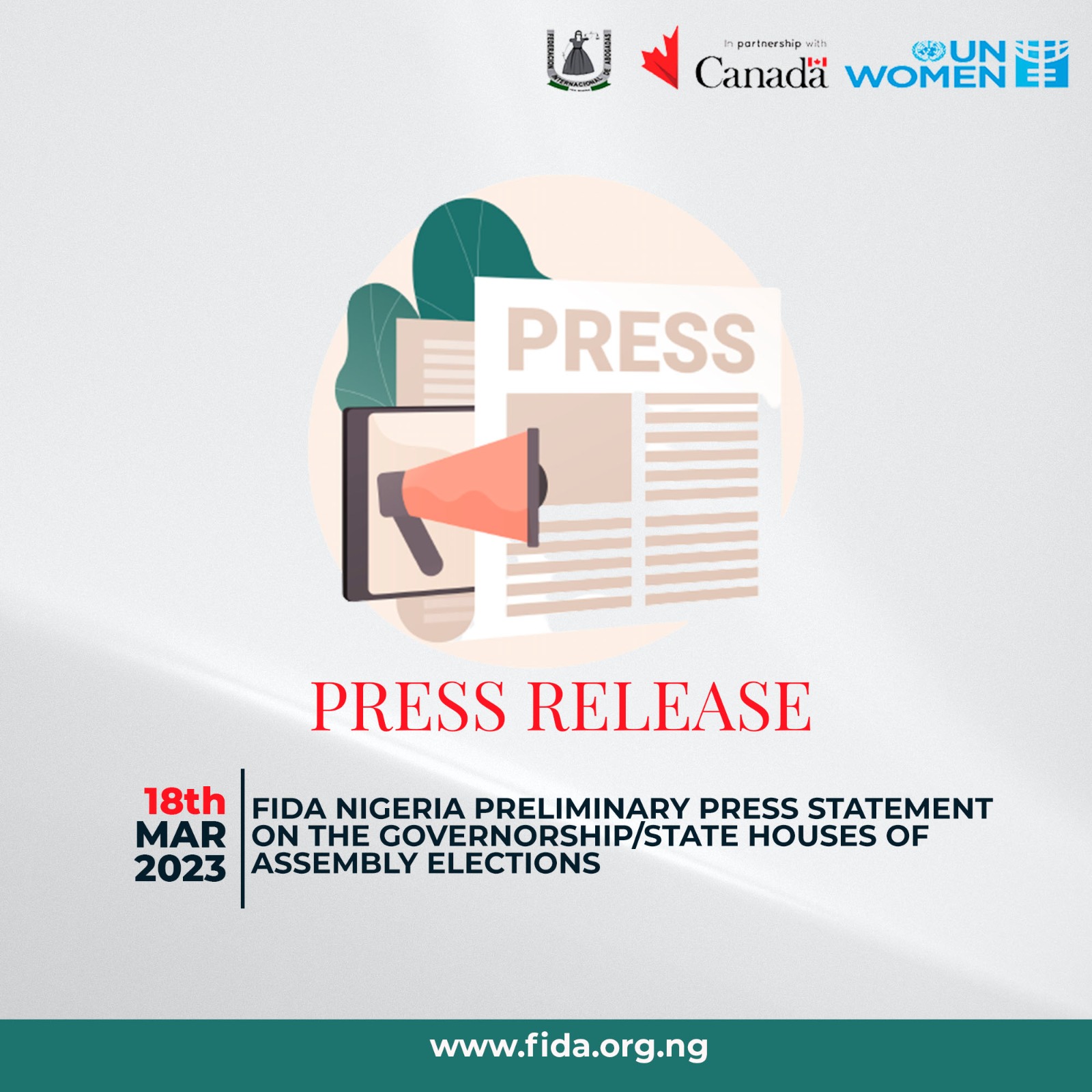
FIDA Nigeria Preliminary Statement on The Governorship & State House of Assembly Elections as it Relates To Women Participation
1.0 Introduction
FIDA Nigeria through her situation room situated at Nicon Luxury Hotel, Abuja, the Nigeria Capital respectively is observing the participation of women and forms of violence perpetrated against women across four focal states of our intervention mainly Borno, Plateau, Kaduna, and Kwara states ,
2.0 Methodology
FIDA Nigeria with support from UNWomen and the Government of Canada under the Advance Women Political Participation Project has observed the participation of women and forms of violence perpetrated against women in the 2023 General Elections through 77 INEC accredited observers deployed across 66 polling units in the aforementioned four focal states.
An election observation tool was administered by our accredited observers at their respective polling units while leveraging partnerships with other civil society actors in observing, documenting, and reporting women participation and incidences of violence perpetrated against women. FIDA Nigeria continues to closely watch the process across sixty-six Local Government Areas under our observatory process until it is concluded by the Independent National Electoral Commission (INEC). The following issues are highlighted as part of our preliminary report:
2.1. Commencement of Polls
Reports across the polling units across our focal states observed indicate that election materials arrived at polling units observed between the hours of 8:30 – 9:30 am. 81.4 % of the polling units had the election materials before 8.30 am, 10% by 9.00 am and 8.6 % later than 9:30 am. For instance, at Polling unit 002, ward 04, Kachia LGA, Kaduna State, Electoral Officials arrived as early as 7.40 am with electoral materials. Similarly, at polling unit 012, ward 02, Kagarko LGA, Kaduna state electoral officials arrived at 7.58 am. In Plateau state, INEC Officials arrived at polling unit 001, taagbe ward, Bassa LGA at 7.25 am, At polling unit 008, ward 02, Dalori primary school, Konduga LGA, Borno state, electoral materials arrived at 8.04 am, while at polling unit 008, ward 01, Damboa LGA, INEC officials were sighted at 8.30 am.
We witnessed the early arrivals of electoral officials in Kwara State. For example, in polling unit 006, ward 02, Kaima LGA and polling unit 007, ward 07, Ilorin West LGA, these officials were seen at 7.40 am and 7.57 am respectively
2.2. Mainstreaming of Female Electoral Officials
We observed that 51.4% of polling units under our observatory had above two female electoral officials, 32.9% less than 2 female electoral officials, and 15.7% had no female electoral officials.
2.3. Security-Related Observations
We observed that only 14.3% of the polling units visited had more than 4 security personnel, 20% had 3 security personnel, 45.7% had 2 security personnel, and 20% had either one or no security presence at the polling units. Females were observed not fully mainstreamed by relevant security agencies in the polling units visited. Statistics from the field indicate that no female security official was seen in 52.9%, 30% of the polling unit had less than two female security personnel, while only 17.1% had above 2 female security officials. Furthermore, security personnel were found armed at polling units in about 7.1% of the polling units observed, however, in 92.9%, security personnel were not armed.
In 90% of the polling units, women felt very secure in the polling units, while women in 10 % of the polling units, experienced some level of insecurity. For example at polling unit 008, ward 02, Dalori primary school, Konduga LGA, Borno state, we witnessed the presence of one security personnel manning the polling unit. A similar occurrence was witnessed at Polling unit 002, ward 04, Kachia LGA, Kaduna State where only one security personnel was observed presently. However, at polling unit 108, ward 13, MMC, a good number of security personnel were observed securing the polls. In 90% of polling units observed, there were no issues of physical confrontation between female election officials, agents, and observers.
2.4. Partiality of Electoral & Security Personnel
In 74.3% of our polling units, electoral and security personnel were observed to demonstrate some level of impartiality, however, there were some concerns of the level of partiality in about 22.9 % of polling units visited
2.5. Turnout of Female Voters:
FIDA Nigeria observed a turnout of female voters in about 57.2% of the polling units observed. This is comparatively low compared to the Presidential/National Assembly Elections where we experienced a turnout of women amounting to 66.2%. For instance, at polling unit 004, ward 05, Jos South, Plateau State, very few women were observed exercising their franchise. Similar incidences occurred at polling unit 027, tudun-wada , Zaria LGA, Kaduna State, and polling unit 006, ward 02, Kaiama LGA, Kwara State.
2.6. Under-Aged Female Voters
In 97.1% of the polling units visited, we observed no incidence of underage voting by Females, while these same percentiles were able to find their names on the voters register.
2.7. Priority Voting for Women from Marginalized/Vulnerable groups
FIDA Nigeria observes that women with disabilities, the elderly/Aged, pregnant women and Nursing mothers were prioritized in the voting process by INEC Adhoc Officials. Our Observers reported that in about 94.3% of the polling units, priority voting occurred, however in 5.7% of the polling units, these groups were compelled to join existing queues toward exercising their franchise.
For instance, at Polling Unit 003, Airforce Primary school, ward 6, Jos South LGA, Plateau State, and polling unit 05, ward 11, Riyom LGA, Plateau state, priority voting was enforced. Similarly, at polling unit 090, Naraguta, Jos North LGA, only aged women were prioritized. At polling unit 10, ward 21, MMC, Borno State aged women and women with disabilities were prioritized. The same occurrence was witnessed at polling unit 004, ward 07, Ilorin west LGA, Kwara State.
2.8. Existence of Separate Queues for Women
In 84.3% of the polling units visited, we observed that INEC ensured that separate queues were created for women to exercise their franchise.
However such was not existent in 15.7% of the polling units visited as INEC made no provisions, neither were no forms of enforcement by security agencies. In polling unit 001, LGEA Primary school, ward 02, Ifelodun LGA, Kwara State, separate queues were observed being enforced. Similar occurrences were observed at polling unit 3, ward 2, Kaura LGA, polling unit 21, ward 18, Sabon-Gari LGA, and polling unit 01, ward 7, Zaria LGA all in Kaduna state. Furthermore, separate queues were observed at polling unit 008, ward 2, Isin LGA, Kwara State and polling unit 008, ward 02, Dalori primary school, Konduga LGA, Borno state.
2.9. Functionality of the Bimodal Voters Accreditation System:
FIDA Nigeria has observed that across most polling units within our purview, the bimodal voter’s accreditation system was largely functional which aided accreditation and the voting process. In 94.3% of polling units visited, the BVAS Machine was highly functional, however, in 5.7% of the polling units observed experienced a technical difficulty which limited women participation. However, in 2.9% of the polling units, women were discouraged and went home. For example at Polling unit 11, Gwantu ward, Sanga LGA, and polling unit 02, ward 4, Kachia LGA, domiciled in Kaduna state, witnessed elections commencing late due to malfunctioning of the BVAS. From our observations, there were no incidences of ballot box snatching or destruction by thugs.
2.9.1. Vote Trading:
FIDA Nigeria observed a few disturbing incidents of vote trading across 8.6% of the polling units. However, 91.4% witnessed no incidences of vote trading in the polling units. At polling unit 027, tudun wada, Zaria LGA, women were observed to be induced by party agents towards swaying their votes for a particular party with the sum of N1,000.
84.3% of female party agents and politicians were found to perpetuate vote buying. At polling unit 21, ward 18, Sabon-gari LGA, Kaduna state, women were observed obtaining food items towards swaying their votes to a leading party. At polling unit 004, ward 7, Ilorin West LGA, Kwara State, female voters were persuaded to vote for another party with the promise of a bank transfer after voting. At polling unit 11, Hayin Mahuta Ward, GIwa LGA, Kaduna state, a leading political party was observed disbursing funds to women. At polling unit 009, community secondary school, Irepodun LGA, Kwara state, women were being induced to vote for a particular party with an undisclosed sum of money, food, and drinks. Similarly, at polling unit 001, ward 04, Ekiti LGA, women were observed being swayed with food items.
We will continually update the media as we receive further information from our deployed observers
3.0. Conclusion
FIDA Nigeria will continue to observe the elections and later issue her post-election statement to detail more on the overall participation of women and perpetrated violence.
God bless the Federal Republic of Nigeria.
Amina Agbaje (Mrs)
Country Vice President/National President
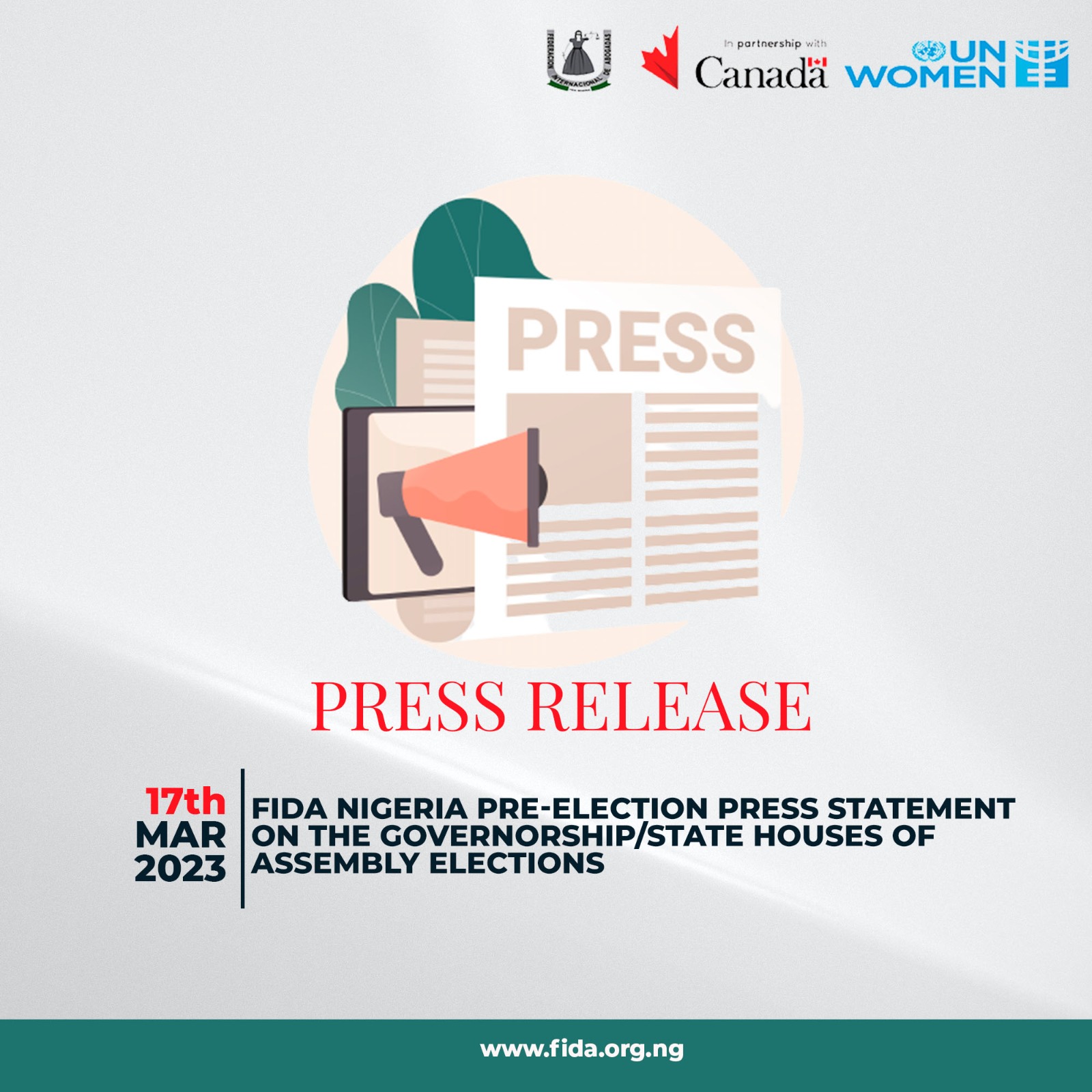
FIDA Nigeria Pre-Election Statement on The Governorship & State Houses of Assembly Elections as It Relates To Women Participation
1.0. Introduction
On Saturday 18th March 2023, Nigerians will exercise their franchise across 176,606 polling units across the country towards electing suitable candidates for Governorship and State House of Assembly seats. This election marks the fourth major election conducted following the enactment of the Electoral Act 2022 after the Ekiti and Osun states off-cycle Governorship Elections and just concluded Presidential & National Assembly Elections conducted on the 25th of February 2023 which was characterized by a lot of shortcomings with several issues ranging from the late arrival of electoral materials at several polling units across the country. The just concluded elections also experienced some technical hitches caused due to failure / slow pace of the bimodal voters’ accreditation system which led to the dis entrancement of a lot of Nigeria Voters inclusive of women, reported incidence of violence, failure of transmission of results from the polling units, which albeit others affected the credibility of the poll.
A major fallout of the elections witnessed women low representation in the forthcoming 10th National Assembly as only 16 female candidates amounting to about 6% won elective positions out of 378 female contestants. We have witnessed only 3 women winning seats in the Nigeria Senate, while 13 winning seats in the Federal Houses of Representative. Comparatively only 3.7% of National Assembly seats were won by women out of the 423 seats declared thus far by the
Independent National Election Commission. This has clearly reiterated the fact that Nigeria’s democratic experience has not expanded opportunities for meaningful participation and representation of women in politics and governance and a reduction in participatory elective positions for females.
2.0. Methodology /Approach
FIDA Nigeria with support from UNWomen and the Government of Canada under the Advance Women Political Participation Project will observe the participation of women alongside forms of violence perpetrated against women in the 2023 Governorship and States House of Assembly Elections through her 77 INEC accredited observers deployed across 66 polling units in the aforementioned four focal States.
An election monitoring tool will be administered by our accredited observers at the respective polling units while leveraging partnerships with other civil society actors in observing, documenting, and reporting women participation and incidences of violence perpetrated against women.
3.0. General Observations/Expectations
i. Low Representation of Female Candidates
Statistics from the Independent National Electoral Commission indicate that about 10,636 candidates are participating in Gubernatorial and States Houses of Assembly nationwide. 419 persons have been sponsored as Governorship and Deputy Governorship Candidates, while, 10,217 candidates are contesting for seats in the House of Assembly. However, only about 1,178 females constituting about 11.07% are contesting as candidates.
A further breakdown indicates that out of the 419 candidates contesting for Governorship seats, only 25 female candidates are contesting, while 102 females are running as Deputy Governorship Candidates, and 1,051 females contesting for seats in the states Houses of Assembly.
We are optimistic that more women will be elected at this level, thereby increasing women representation. ii. Securing the polls:
We expect strategic deployment of security personnel across the176, 606 polling units of the state towards forestalling any form of violence at the polls which will limit the participation of women in the general elections. We observed that from the Presidential /National Assembly elections, only about 26.8% of polling units had more than 4 security personnel, while 22.5% had 3 security personnel, Cumulatively less than 50% of polling units observed had more than 3 security personnel.
This reiterates the call for the sufficient deployment of security personnel to checkmate all forms of Gender Based violence that may impede the credibility of the poll. We hope to find security personnel at the polling units identified by their name tags, demonstrate non-partisanship in the discharge of their responsibilities and abide by the revised code of conduct and rules of engagement for security personnel on electoral duty.
iii. Turnout of female voters
We expect that we will witness more participation of women at the polls. We recall that there has been a low turnout of voters at the just concluded presidential and National Assembly with only 26.71% of registered voters actually participated in the polls with about 73.29% abstaining from the voting process. Notwithstanding, this low turnout, we encourage more women to exercise their franchise in the polls while calling on INEC and Security agencies to provide the enabling platform for women participation.
iv. INEC logistical arrangements to aid Electoral Process:
We expect early deployment of sensitive and non-sensitive election materials at the polling units as well as election officials at the
commencement of polls. This will help to promote confidence in the system and improve the credibility of the poll. We recall that the just concluded presidential and National Assembly Elections were characterized by a lot of shortcomings with several issues ranging from the late arrival of electoral materials at several polling units across the country which led to the dis entrancement of a lot of Nigeria Voters inclusive of women and affected the credibility of the poll adversely.
9.09% of polling units under our observatory had concluded voting and counting of votes had either commenced or ended accordingly at 2.30 pm. However, about 72.7% of polling units visited still had the voting process ongoing as of 4 pm due to the late arrival of the electoral materials or malfunctioning of the BVAS
We hope that the Election Management Body provides electoral materials timeously towards ensuring the effective and seamless participation of women at the polls.
4.0. Recommendations/Conclusions
In light of the foregoing, key actors in the electoral processes particularly INEC, political parties, security agencies, mass media, and Civil Society Organisations need to pay increasing attention to factors limiting women participation ahead of the Governorship and State Houses of Assembly Election.
As such, the following recommendations are considered pertinent:
Deployment of Electoral materials (Sensitive & Non –Sensitive) across all Registration Area Centers and polling units timeously is key for an improved political participatory process for women.
Effective collaboration and synergy with other stakeholders especially INEC, Security agencies, and Election Observation Groups should be cultivated and sustained.
Security agencies should continually adhere to the principles of impartiality and neutrality toward securing the polls which will help in mitigating electoral violence, especially those perpetuated against women in elections.
May God Bless the Federal Republic of Nigeria
Amina Agbaje (Mrs)
Country Vice President/National President
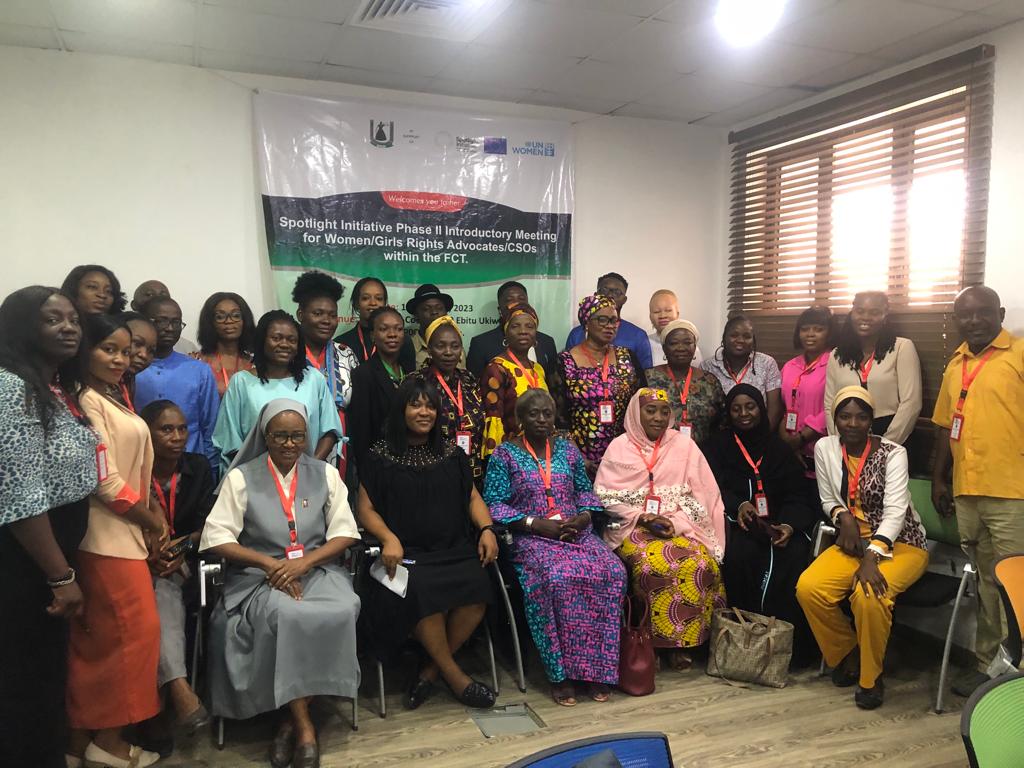
FIDA Nigeria holds Spotlight Initiative Phase II introductory meeting with CSOs, women, and girls’ rights advocates within the FCT.
The Spotlight Initiative is a global, multi-year partnership between the European Union and the United Nations (EU-UN) agencies to eliminate all forms of violence against women and girls.
The Initiative seeks to respond to all forms of violence against women and girls, with a particular focus on sexual and gender-based violence and harmful practices, by beaming a spotlight on these existential issues, while placing them at the center of a collective drive for gender equality and women’s empowerment, in line with the 2030 Agenda for Sustainable Development.
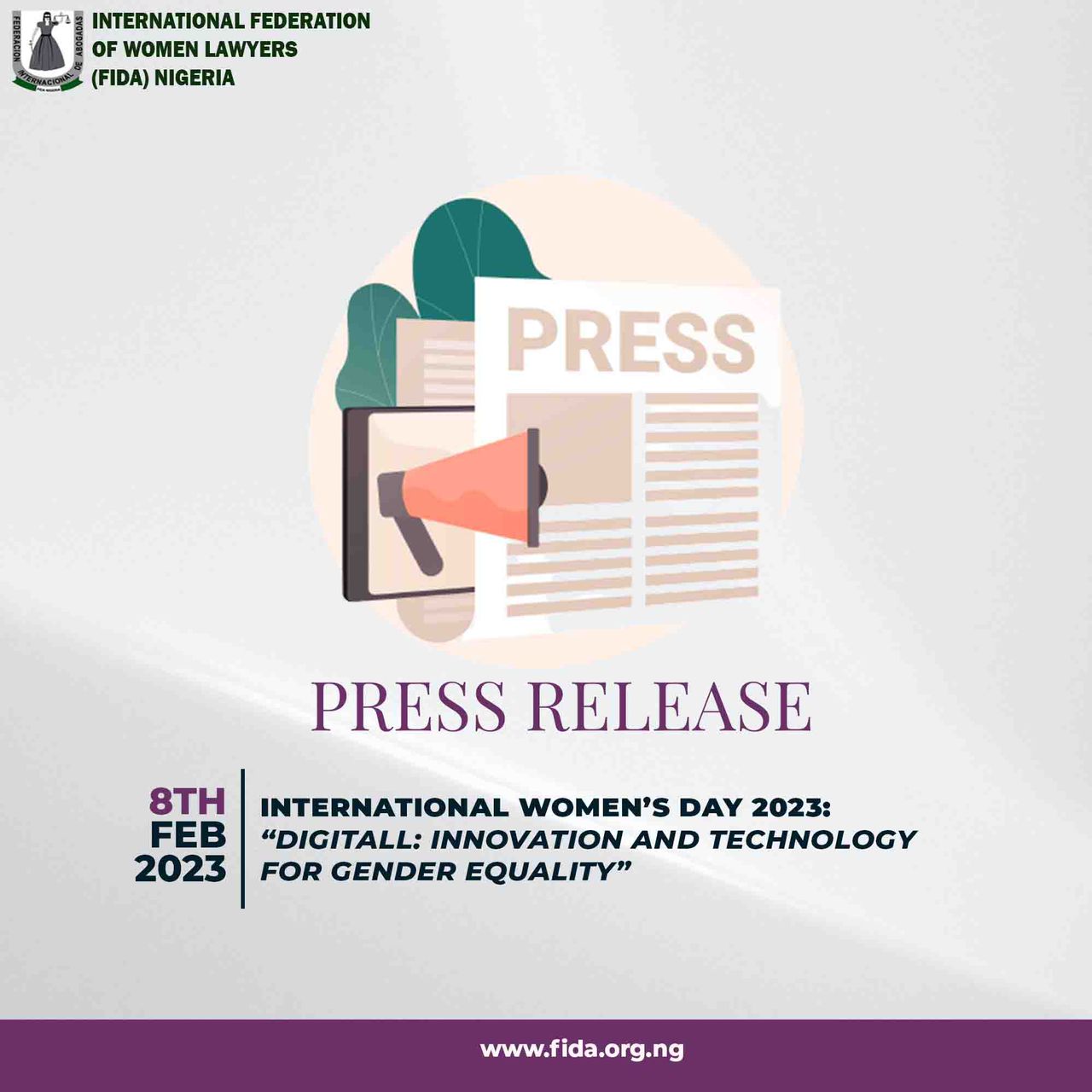
International Women’s Day 2023: “DigitALL: Innovation and technology for gender equality”
As we commemorate International Women’s Day 2023, it is important to reflect on this year’s theme focusing on the key role innovation and technology play in promoting gender equality.
FIDA Nigeria acknowledges digital technology as one of the greatest innovations of our time. In our modern world today, digital literacy is an essential skill especially as most of our everyday activities in communities often revolve around the use of digital technology. As such digital technology has transformed the way we work, communicate, transact, learn, and even handle financial transactions.
Nevertheless, the operation of digital technology has also greatly shown the inequalities that exist between genders because of the comparative small number of women that can effectively handle and operate in such spaces.
We acknowledge that women have always faced unique challenges in the workplace particularly because the traditional office setup has often failed to accommodate the needs of women, especially mothers.
Digital technology has therefore created new opportunities for women to work remotely, giving them more flexibility to manage their personal and professional lives.
This proved particularly important during the COVID-19 pandemic, where many women were forced to work from home. We celebrate women who stepped up, learnt, and embraced the technological advances and changes.
FIDA recognizes that;
Digital Technology has also opened new avenues for education and learning. Women who may not have had access to traditional educational systems can now access online courses and resources from anywhere in the world. This has created beautiful opportunities for women to upskill and pursue new careers, which may have otherwise been out of their reach.
The downside of innovations in technology must also be noted as there are significant barriers that prevent majority of women from fully accessing and benefiting from digital technology.
One of the biggest challenges is the gender gap in technology-related fields. Women are still under-represented in STEM (Science, Technology, Engineering, and Mathematics) fields, which are the driving force behind many technological innovations. This limits the career opportunities available to women and their operation and daily use of such, in a world that has largely gone digital.
FIDA therefore encourages the use of key strategies to attract more women and girls to STEM in Nigeria, such as:
• Encouraging women in STEM to engage in international and national collaborative scientific research, particularly engaging with more advanced countries for better exposure and experience
• Involving female scientists in Nigeria in the development of STEM policies.
• Encouraging young girls to develop an interest in STEM and empowering women across board through ICT.
• Exploring online engagement to strengthen participation and awareness of use of technology.
• Sponsoring women to participate in STEM workshops, conferences, seminars, and exhibitions.
FIDA in noting the
digital gender divide
challenge, appreciates the fact that women in developing countries like ours are less likely to have access to digital technology than their male counterparts. This therefore limits their ability to access information, education, and job opportunities, and compete equally on a level playing field. This therefore contributes to the cycle of poverty experienced by women.
To address these challenges, there needs to be a concerted effort to promote gender equality in this digital age.
This includes:
• Encouraging more women to pursue careers in STEM fields and providing support and mentorship to help them succeed.
• Ensuring that women in developing countries have access to digital technology and providing training and resources to help them use it effectively.
• Promoting policies that support work-life balance, including flexible work arrangements and parental leave.
• Creating safe and inclusive online spaces that promote respect and equality and protect women from online harassment and abuse.
• Supporting initiatives that promote digital literacy and digital skills training for women of all ages.
FIDA Nigeria Celebrates women who are already working in the digital space and charges them to work more closely with other women and the girl child, by creating necessary platforms and opportunities for the girl child to use thereby supporting in closing the gender gap in this sector.
We especially celebrate Nigerian female digital tech champions who have accomplished giant strides in this sector despite known challenges. They stand today as great inspirations and worthy mentors to the girl child.
FIDA Nigeria encourages gender inclusive Innovation, calls for collective efforts from all – the government, civil society organizations, FBOs, International institutions, and their agencies to help the plight of the Nigerian girls and women by increasing their digital skills to help bridge the inequality and digital gender gap.
In conclusion, digital technology has the potential to be a powerful tool for promoting gender equality. However, to fully realize this potential, we must work together to address the unique challenges faced by women in the digital age and space. By promoting gender equality in the digital sphere, we can help create a more inclusive and equitable world for all.
DigitalGeneration.
Signed:
Amina Suzanah Agbaje
Country Vice President/National President
FIDA Nigeria
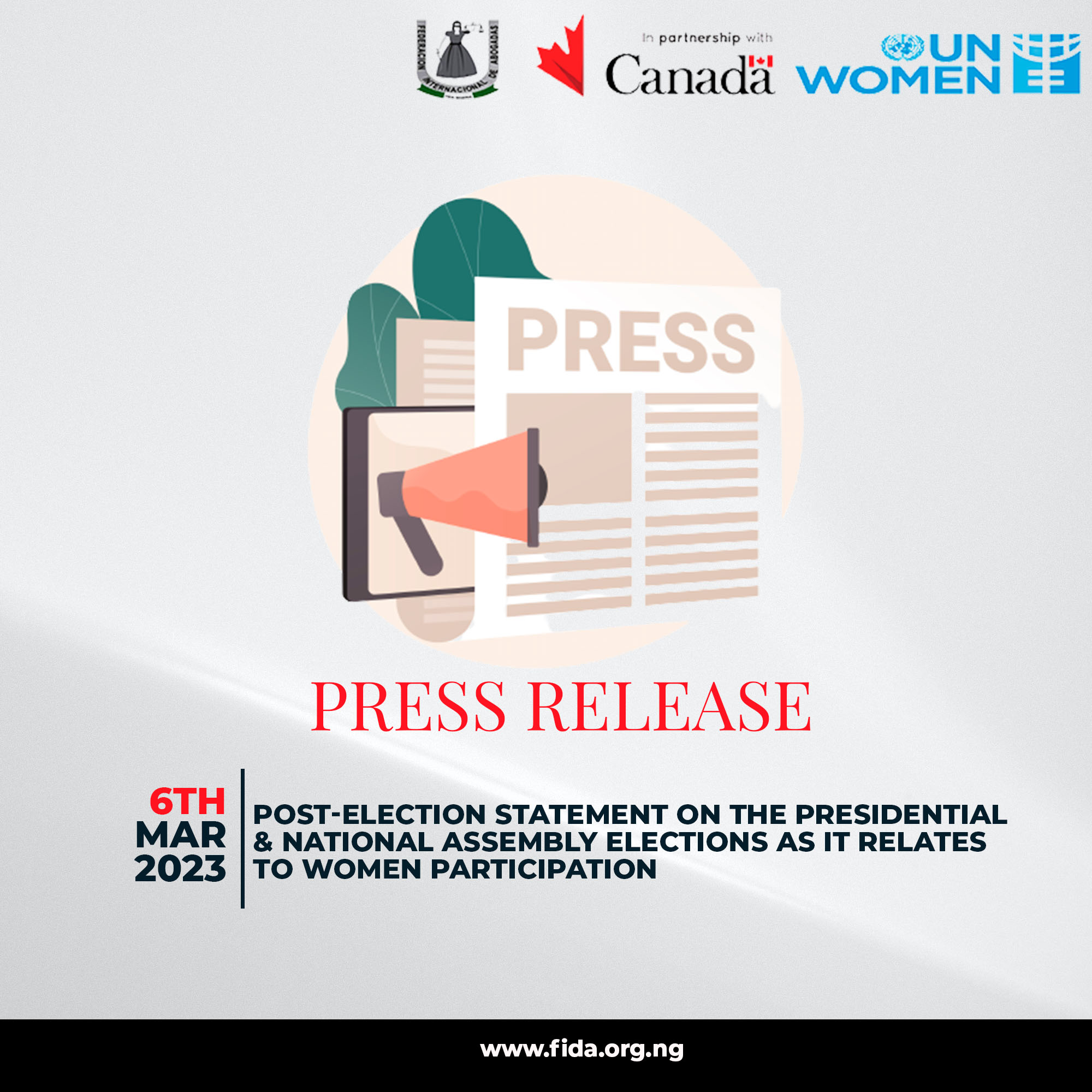
Post-election statement on the presidential & national assembly elections as it relates to women participation
1.0 Introduction
The Presidential/ National Assembly Elections has been concluded with the Electoral Umpire (Independent National Electoral Commission) declaring Bola Ahmed Tinubu of the All Progressive Congress Party (APC) as winner of the presidential elections with 8,794,726 votes constituting 36.61% of total votes cast defeating the other seventeen contestants to emerge victorious. According to INEC records, the total number of registered voters is pegged at 93,469,008 million, however, only 24,025,940 constituted a total number of valid votes cast.
This election marked the third major election conducted following the enactment of the Electoral Act 2022 after the Ekiti and Osun states off-cycle Governorship Elections with attention hinged on the Independent National Electoral Commission (Electoral Management Body) performance in administering the polls.
Observations demonstrated that the election was characterized by a lot of shortcomings with several issues ranging from late arrival of electoral materials at several polling units across the country, technical hitches due to failure / slow pace of the bimodal voters accreditation system which led to the dis entrancement of a lot of Nigeria Voters inclusive of women, reported incidence of violence, failure of transmission of results from the polling units, which albeit others affected the credibility of the poll.
Despite the shortcomings in the political process, we have observed the competitiveness across the four leading candidates which can be attributed to political consciousness and socialization by the electorates. We commend eligible voters and all citizens that participated actively in the process for their commitment and dedication.
FIDA Nigeria through her situation room situated at Nicon Luxury Hotel, Abuja, the Nigeria Capital observed the participation of women in the elections alongside other forms of violence perpetrated against women across four focal states of our intervention; mainly Borno, Plateau, Kaduna, and Kwara States respectively. Our Observations culminated in the dissemination of our pre-election statements on Thursday the 23rd and preliminary statements on Saturday the 25th of February 2023. FIDA Nigeria through her observations provides a further update on our findings as follows:
2.0 Methodology /Approach
FIDA Nigeria with support from UNWomen and the Government of Canada under the Advance Women Political Participation Project observed the participation of women alongside forms of violence perpetrated against women in the 2023 General Elections through her 77 INEC accredited observers deployed across 66 polling units in the aforementioned four focal States.
An election monitoring tool was administered by our accredited observers at their respective polling units while leveraging on partnerships with other civil society actors in observing, documenting, and reporting women participation and incidences of violence perpetrated against women.
3.0. Voters Turnout
FIDA Nigeria observed from INEC official results made available in the public space that 24,025,940 Nigerians exercised their franchise at the polls from a total of 93,469,008 million registered voters. This indicates that about 26.71% of registered voters actually participated in the polls with about 73.29% abstaining from the voting process. Comparatively the turnout is lower than 2019 where 28,614,190 out of 82,344,107 registered voters voted, 2015 where 29,432,083 out of 68,833,476 registered voters exercised their franchise, and 2011 which witnessed 39,469,484 out of 73,528,040 registered voters performing their civic duty respectively in the presidential Elections. Comparatively in percentiles across the three previous elections, we have observed that about 34.75%, 43.65%, and 53.68% of the total voting population respectively exercised their franchise accordingly. The implication of this dwindling participation underscores the urgent need for the voters register needs to be cleaned up by INEC to enable the country to have an accurate number of truly registered voters.
Matters relating to the timeframe for conducting elections needed to be extended, and the electoral process needs to be improved upon to enable Nigerians on essential duties during elections to exercise their franchise. There is a further need for an improved voter awareness strategy by all stakeholders towards ensuring an increase in the voting population of women.
4.0. Commencement of Polls
Reports from 38% of polling units across our focal states indicated the arrival of electoral materials at 8.30 am. 19.7% of polling units received electoral materials and commenced voting at about 9.30 am. At polling unit 11, ward 10, Baruteen LGA, Kwara State, polls were observed to have commenced at 9:15 am, similarly, at Polling unit 2, ward 4, Kachia LGA, Kaduna State, polls commenced at 9:30 am. Despite this early commencement, voting was observed to have commenced in about 42.3% of polling units between 9:30 am to 1:30 pm. For instance, at polling unit 17, Ward 4, Ilorin South LGA, polls had not commenced as of 12 noon. Further inquest from polling unit 34, Afak, in Igabi LGA of Kaduna State indicated the commencement of voting at 10:20 am, same experiences repeatedly occurred at Polling Unit 002, Ward 002, Barkin Ladi LGA, Plateau State, and polling unit 007, Ward 02, Mafa LGA of Borno State where electoral materials arrived the respective polling units from 10 am.
5.0. Close of Polls
FIDA Nigeria observers reported that as of 2:30 pm, only 9.09% of polling units under our observatory had concluded voting, and the counting of votes had either commenced or ended accordingly. However, about 72.7% of polling units visited still had the voting process ongoing as at 4 pm due to the late arrival of the electoral materials or malfunctioning of the BVAS. Voting procedures were observed in about 18% of polling units after 4 pm. For instance, at polling unit 001, ward 12, Kagarko LGA, Kaduna State, voting was witnessed ongoing after the hours of 4 pm due to heavy rain downpours which impeded the voting process. Similarly, in polling unit 047, Chikun LGA, Kaduna State, quite a large number of persons including women had not exercised their franchise as of 3.45 pm. At polling unit 029, Kurgwi, Shendam LGA, Plateau State, polls were observed ongoing as of 4.00 pm. However, the elections in that unit were canceled, due to the non-availability of sufficient ballot papers and rescheduled to Sunday 26th February 2023.
5.0 Other Major Findings
5.1. Reported Incidences of Violence Perpetrated Against Women:
FIDA Nigeria observed some negative incidences of patriarchal, physical, and other forms of violence perpetrated against women at some of the polling units within our observation in focal states and across the country. For instance, at polling unit 003, Ward 4, Kaura LGA, Kaduna State, men in the polling unit protested and resisted the prioritization of women voting. At Polling Unit 18, Ward 8, Marte LGA, Borno State, there were incidences of physical violence in which women became victims which discouraged and limited their participation in that unit. At polling unit 001, Kawbai, Zaria LGA, we observed that male party agents clearly interfered with the voting process by ensuring that women had voted for only a particular political party.
In Edo state, a lady was shot dead by assailants who shot sporadically at her polling unit while votes were still counted. This incident disrupted the voting process. A similar incident had occurred in the Surulere area of Lagos where a woman was attacked and stabbed by party thugs. She however despite these violent setbacks returned to cast her votes in her polling unit.
5.2. Mainstreaming of Female Electoral Officials:
We observed that in 26.8% of the polling units visited, three electoral officials were provided by INEC. 69% of polling units had 4 electoral officials, and less than 4 % of polling units had two (2) electoral officials. With regards participation of female electoral officials, we observed about 47.9% of polling units had more than 2 female electoral officials, 39.4 % had less than 2 officials, and 12.7% had no female electoral officials.
5.3. Security-Related Observations:
We observed that 26.8% of polling units had more than 4 security personnel, 22.5% had 3 security personnel, 28.2% had 2 security personnel, and 22.5 % had either one or no security presence at the polling units. Females were observed not fully mainstreamed by relevant security agencies in the polling units visited. Statistics from the field indicated that no female security official was seen in about 49.3% of observatory polling units. 33.8% of the polling units under our watch had less than two female security personnel, while only 16.9% had above 2 female security officials. Furthermore, security personnel were found armed at polling units in about 18.7% of the polling units observed, however, in 81.7%, security personnel were not armed.
In 88.7% of the polling units, women felt very secure in the polling units, while women in 9.9% of the polling units, experienced some level of insecurity.
5.4. Partiality of Electoral and Security Personnel:
In 91.5% of our polling units, electoral and security personnel were observed to have demonstrated some level of impartiality, however, there were some concerns about the level of partiality in about 8% of polling units visited. For instance, at polling unit 002, ward 001, Zaria LGA, Kaduna State, An electoral official was observed tampering with the voting process, while party agents were observed also distributing the process with connivance by security agencies.
5.5. Turnout of Female Voters:
FIDA Nigeria observed a large turnout of female voters across 66.2% of the polling units visited. In polling unit 006, Ward 2, Kaiama LGA, Kwara State, and unit 007, Ward 2, Mafa LGA, Borno State, women were observed in good numbers exercising their franchise. Similar experiences were observed at polling unit 07, Ward 4, Ilorin South LGA, Kwara State, and polling unit 001, Katugal, Kagarko LGA, Kaduna State. However, at unit 3, ward 004, Kaura LGA, Kaduna State, a large number of women who had lost their Permanent Voters Cards from the recent attacks and loss of property were not allowed to vote.
5.6. Participation of Under-Aged Female Voters:
In 94.4% of the polling units visited, we observed no incidence of underage voting by Females. However, in 5.6% of polling units observed, underage voting was witnessed. For instance, in polling unit 003, Ward 1, Zaria LGA, young girls were observed clearly below the stipulated age for voting. In polling unit 006, Ijabo ward, Oyun LGA, Kwara State, a similar occurrence occurred.
5.7. Priority Voting for Women from Marginalized/Vulnerable groups:
FIDA Nigeria observed that women with disabilities, the elderly/aged, pregnant women and nursing mothers were prioritized in the voting process by INEC Adhoc Officials. Our Observers reported that in about 85.9% of the polling units under our watch, priority voting occurred. However, in 14.1% of the polling units, these groups were compelled to join existing queues towards exercising their franchise.
For instance at Polling Unit 001, Magajin Gari, Jema” an LGA, Kaduna State, Priority voting was not observed as women were not given special considerations. A similar experience occurred at polling unit 002, Government Secondary School, Kachia, where a woman with an infant baby carried on her back was not prioritized. However, in polling units 002 and 003, Ward 7 Igabi LGA, an aged woman was observed given priority. In Plateau State, at polling unit 001, kitago in Bassa LGA, elderly and pregnant women were observed to have been provided with a separate voting priority queue, similarly, in polling unit 005, RCM Primary School, Qua’an Pan LGA of the state, the elderly and pregnant women also had a separate voting priority queue. At polling unit 002, Ward 6 Langtang North LGA, Plateau State, women with disabilities were given priority voting. While at Mafa LGA Polling Unit 007, Ward 2, Borno State, older women, nursing mothers, and pregnant women were also prioritized.
5.7.1. Existence of Separate Queues for Women:
In 84.5% of the polling units visited, we observed that INEC ensured separate queues were created for women to exercise their franchise. However such was not existent in 15.5% of the polling units visited as INEC made no provisions, and neither were no forms of enforcement by security agencies. In polling unit 001, RCM primary school Kabwir, Kanke LGA, Plateau State, separate queues were not prioritized.
5.8. Functionality of the Bimodal Voters Accreditation System:
FIDA Nigeria has observed that across most polling units within our purview, the bimodal voter’s accreditation system was functional which aided accreditation and the voting process. In 91.5% of polling units visited, the BVAS Machine was observed functional, however, in about 8.5% of the polling units, women participation was limited as a result of technical difficulty in capturing and recognizing women voters. For instance, at Polling Unit 18, Ward 8, Marte LGA, Borno State the BVAS under captured a large number of female voters which affected voting and left women disenfranchised. Similarly, at polling unit 9, ward 2, Irepolodun LGA, and Polling unit 001, Ward 002, Ifelodun LGA, both in Kwara state, BVAS Malfunction was observed but was later on resolved, which enabled voting to continue. Other incidences occurred in Polling Unit 175, Maisandari Ward, MMC, Borno State, where only one voter was accredited at 12:45 pm due to the slow pace of the BVAS.
5.9. Secrecy of the Ballot /Vote Trading:
FIDA Nigeria observed that the ballot process was transparent and fair in 96.1% of polling units covered by our observers and women voters in more than 59.7% of the covered polling units were observed to have voted in secrecy. Furthermore, women voters were observed to have exercised their franchise in about 97.4% of polling units visited.
FIDA Nigeria observed few disturbing incidents of vote trading across 1.4% of the polling units visited while 98.6% of polling units witnessed no incidences of vote trading. Noticeably in polling unit, 025 Jibga LEA, Zaria LGA, Kaduna State, a leading political party was observed providing women with food items towards swaying their votes. Similarly, at polling unit 011, Kafanchan, Jama’a Local Government, Kaduna State, Security personnel were observed to have colluded with party agents to covertly sway female voters with non-disclosed cash amounts which will be availed upon voting.
6.0. Recommendations/Conclusion
In view of our pre-election, preliminary, and post-election observations/findings during the election, FIDA Nigeria recommends the following to the below-mentioned actors towards deepening the democratic process in Nigeria ahead of the Governorship and State Houses of Assembly Elections scheduled to hold on the 11th March 2023:
6.1. Independent National Electoral Commission
- Prosecution of electoral offenders observed to have committed all forms of electoral offenses in contravention of the Electoral Act 2022 (as amended) which will serve as a deterrent to other intending offenders.
- Train and retrain electoral officers and ad-hoc staff on current electoral technologies and realities to enable them to meet with the changing needs of the Nigerian electoral process.
- Given the below-average voter turnout in the just concluded elections, we urge INEC to embark on high-level dialogues with key stakeholders including traditional and religious leaders to encourage the participation of more female electorates and citizens, in general, to exercise their franchise at subsequent elections.
- The voters register needs to be cleaned up by INEC to enable the country to have an accurate number of truly registered voters.
- Issues relating to the timeframe for conducting elections needed to be extended from 8:30 am to about 5 pm to encourage more women participation.
6.2. Security Agencies
i). We call on the security agencies deployed for election duty to arrest and investigate all those involved in electoral crimes and in contravention of the electoral act for prosecution;
ii). Security agents should continually adhere to the principles of impartiality and neutrality toward securing the polls which will help in mitigating electoral violence, especially those perpetuated against women in elections.
6.3. Politicians and Political Parties
i). Should maintain peace and be magnanimous in victory.
ii). Should work with all Nigerian citizens including those in the opposition parties to improve the governance and well-being of citizens.
6.4. Media
i). Should desist from the production of sensational headlines and hate speeches that contribute to increased tension before, during, and after elections.
ii). Should verify and fact-check all information received before releasing it to the public.
iii). Should remain professional, neutral, and non-partisan in the discharge of duties.
God bless the Federal Republic of Nigeria.
Amina Agbaje (Mrs)
Country Vice President/National President
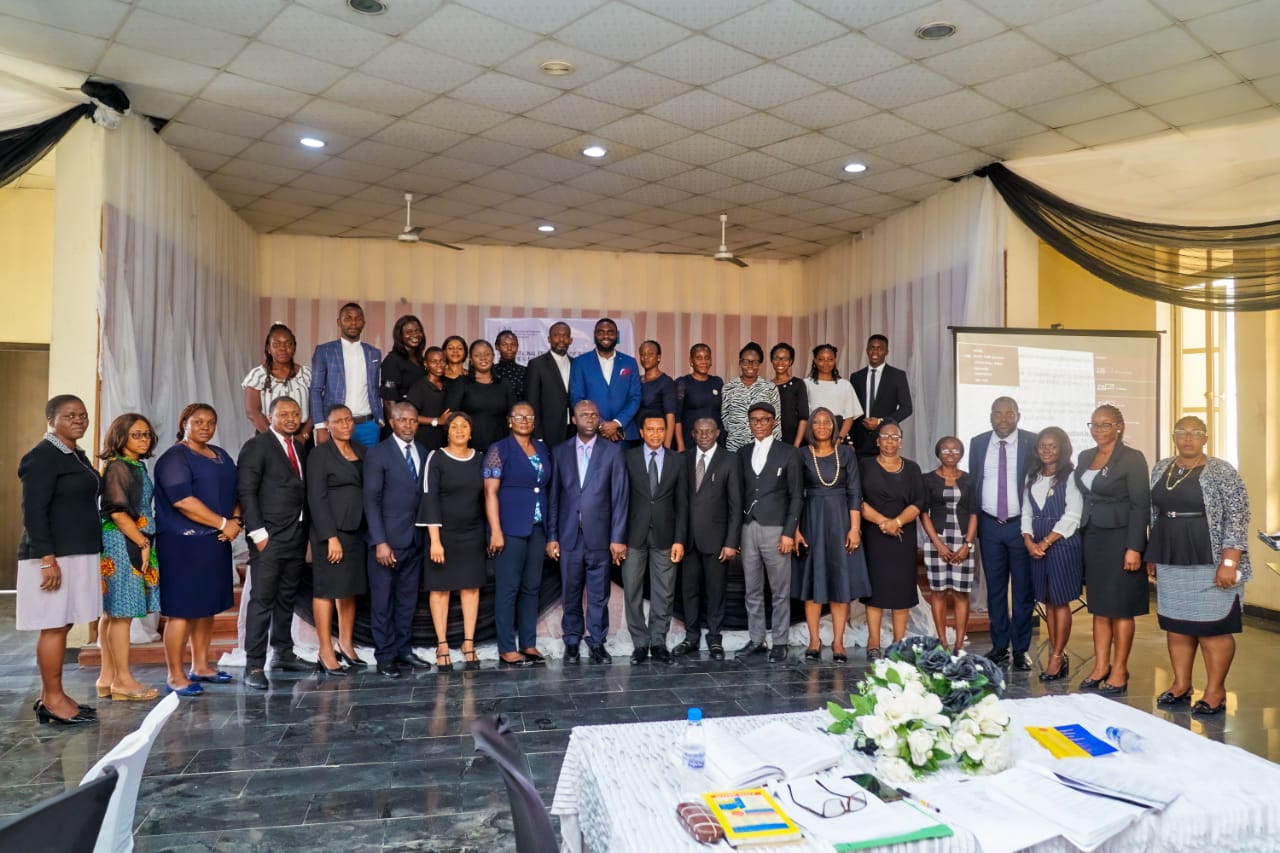
FIDA Nigeria organized a one-day validation workshop on the Bayelsa State ACJL 2019
The International Federation of Women Lawyers (FIDA) Nigeria, Bayelsa State Branch, with support from MacArthur Foundation (MAF) on the 3rd day of March 2023, successfully held its validation exercise on the Bayelsa State ACJL 2019, Practice Direction which was developed at the workshop held on the 19th day of December 2022.
In attendance was the Acting Chief Judge of Bayelsa State, who was represented by Hon. Justice Eradi, and other Judges, Magistrates, representatives from the Ministry of Justice, Nigerian Police Force, National Human Rights Commission, Legal Aid Council, and members from the Nigeria Bar Association.
The participants and the consultant went through the draft extensively while making necessary inputs. After all corrections and observations were made, participants affirmed the document and all agreed that same be forwarded to the Acting Chief Judge for his final input and signing.
The Validation Exercise came to an end with the presentation of copies of the Bayelsa State ACJL 2019, to the various stakeholders in the criminal justice sector with a goal to foster effective implementation stemming from accessibility to the principal law.

FIDA Nigeria preliminary statement on the presidential & national assembly elections as it relates to women participation
1.0 Introduction
FIDA Nigeria through her situation room situated at Nicon Luxury Hotel, Abuja, the Nigeria Capital respectively is observing the participation of women and forms of violence perpetrated against women across four focal states of our intervention mainly Borno, Plateau, Kaduna, and Kwara states
2.0 Methodology
FIDA Nigeria with support from UNWomen and the Government of Canada under Advance Women Political Participation Project is observing the participation of women and forms of violence perpetrated against women in the 2023 General Elections through 77 INEC accredited observers deployed across 66 polling units in the aforementioned four focal states.
An election monitoring tool was administered by our accredited observers at their respective polling units while leveraging partnerships with other civil society actors in observing, documenting, and reporting women participation and incidences of violence perpetrated against women. FIDA Nigeria continues to closely watch the process across the 66 Local Government Areas under our observatory process until it is concluded by the Independent National Electoral Commission (INEC).The following issues are highlighted as part of our preliminary report:
2.1. Commencement of Polls
Reports across the polling units across our focal states observed indicate that election materials arrived at polling units observed between the hours of 8:30 – 9:30 am. 38 % of the polling units had the election materials before 8.30 am, 19.7% by 9.30 am, and 42.3% later than 9:30 am.
2.2. Mainstreaming of Female Electoral Officials
Furthermore, we observed that 26.8% of polling units visited had three electoral officials, 69% had 4 electoral officials, and less than 4 % had two (2) electoral officials. With regards participation of female electoral officials, we observed about 47.9% had more than 2 female electoral officials, 39.4 % had less than 2 officials, while 12.7% had no female electoral officials.
2.3. Security Observations
We observed that 26.8% had more than 4 security personnel, 22.5% had 3 security personnel, 28.2% had 2 security personnel, while 22.5 % had either one or no security presence at the polling units. Females were observed not fully mainstreamed by relevant security agencies in the polling units visited. Statistics from the field indicate that no female security official was seen in 49.3%, 33.8% of the polling unit had less than two female security personnel, while only 16.9% had above 2 female security officials. Furthermore, security personnel were found armed at polling units in about 18.7% of the polling units observed, however, in 81.7%, security personnel were not armed.
In 88.7% of the polling units, women felt very secure in the polling units, while women in 9.9% of the polling units, experienced some level of insecurity.
2.4.Partiality of Electoral & Security Personnel
In 91.5% of our polling units, electoral and security personnel were observed to demonstrate some level of impartiality, however, there were some concerns of the level of partiality in about 8% of polling units visited
2.5. Turnout of Female Voters:
FIDA Nigeria observed a large turnout of female voters in about 66.2% of the polling units observed. in polling unit 006, ward 2, Kaiama LGA, Kwara State. In Unit 007, Ward 2, Mafa LGA, Borno State, Women were observed in good numbers exercising their franchise.
2.6.Under-Aged Female Voters
In 94.4% of the polling units visited, we observed no incidence of underage voting by Females. However, in 5.6% of polling units observed, underage voting was witnessed. For instance, in polling unit 003, Ward 1, Zaria LGA, young girls were observed clearly below the stipulated age voting. In polling unit oo6, Ijabo ward , Oyun LGA, Kwara State, a similar occurrence occurred.
2.7. Priority Voting for Women from Marginalized/Vulnerable groups
FIDA Nigeria observes that women with disabilities, the elderly/Aged, pregnant women and Nursing mothers were prioritized in the voting process by INEC Adhoc Officials. Our Observers reported that in about 85.9% of the polling units, priority voting occurred, however in 14.1% of the polling units, these groups were compelled to join existing queues toward exercising their franchise.
For instance, at Polling Unit 001, Magajin Gari, Jema” LGA, Kaduna State, Priority voting was not observed as elderly Women were not given special consideration. However, at Polling units 002 & 003, Ward 7 Igabi LGA, an aged woman was observed given priority. In Plateau at polling unit 001, kitago in Bassa LGA, elderly and pregnant women were observed provided a separate voting priority queue, similarly, in Polling unit 005, RCM Primary School, Qua’an Pan LGA, the elderly and pregnant women also have a separate voting priority queue. At polling unit 002, Ward 6 Langtang North, women with disabilities are given priority voting, While at Mafa LGA Polling Unit 007, Ward 2, Borno State older women, nursing mothers, and remaining women were prioritized
2.8.Existence of Separate Queues for Women
In 84.5% of the polling units visited, we observed that INEC ensured that separate queues were created for women to exercise their franchise. However such was not existent in 15.5% of the polling units visited as INEC made no provisions, and neither were any form of enforcement by security agencies. In polling unit 001, RCM primary school kabwir, Kanke LGA, Plateau State, separate queues were not prioritized.
2.9. Functionality of the Bimodal Voters Accreditation System:
FIDA Nigeria has observed that across most polling units within our purview, the bimodal voter’s accreditation system was largely functional which aided accreditation and the voting process. In 91.5% of polling units visited, the BVAS Machine was highly functional, however in 8.5% of the polling units observed experienced technical difficulty which limited women participation,
2.9.1. Vote Trading: FIDA Nigeria observed a few disturbing incidents of vote trading across 1.6% of the polling units. However, 98.6% witnessed no incidences of vote trading in the polling units observed especially as our observers reported that these polling units were to have witnessed voting inducements. We will update the media as we receive further information from our deployed observers
3.0.. Conclusion
FIDA Nigeria will continue to observe the elections and later issue her post-election statement to detail more on the overall participation of women and perpetrated violence.
God bless the Federal Republic of Nigeria.
Amina Agbaje (Mrs)
Country Vice President/National President


